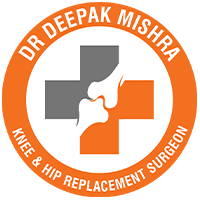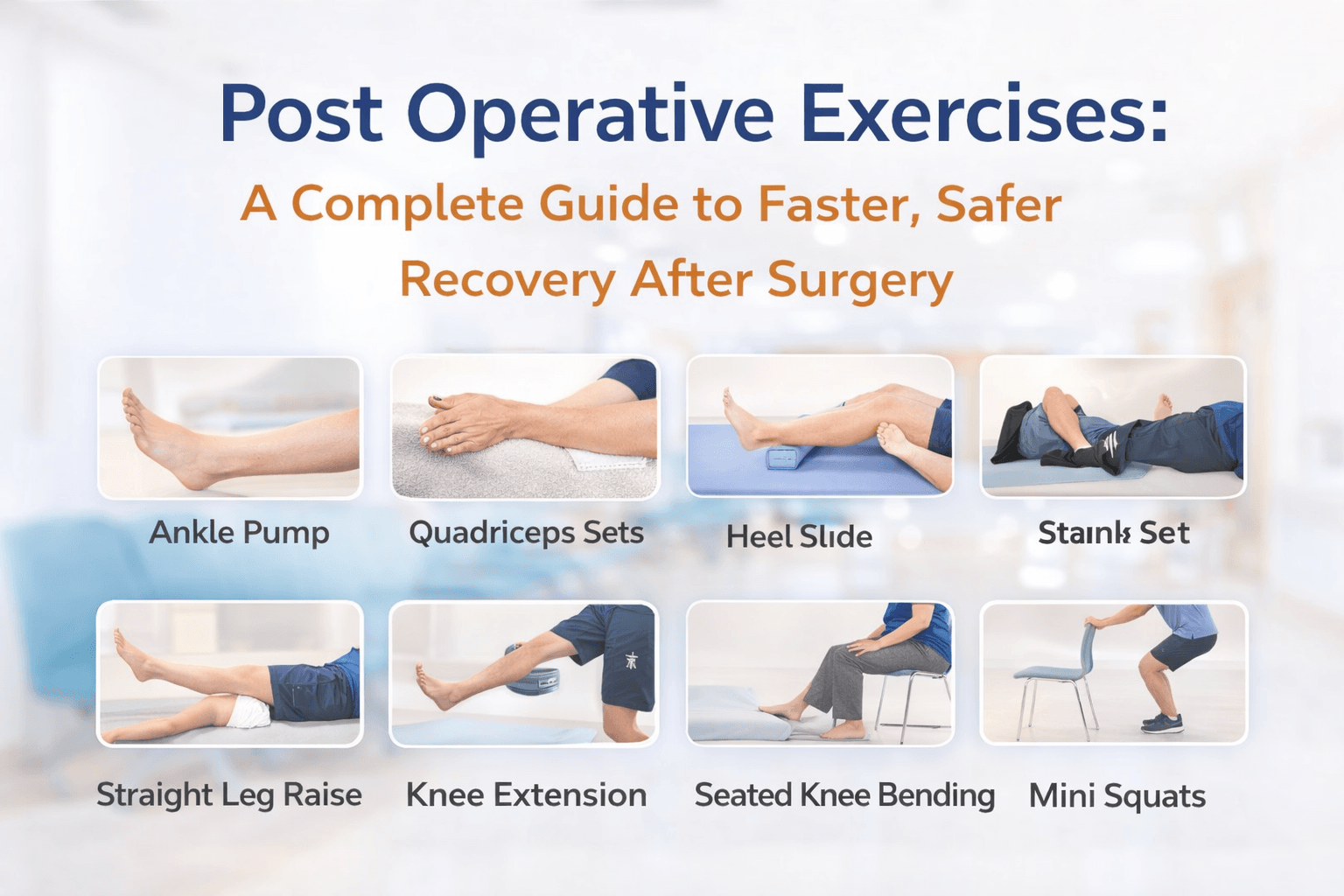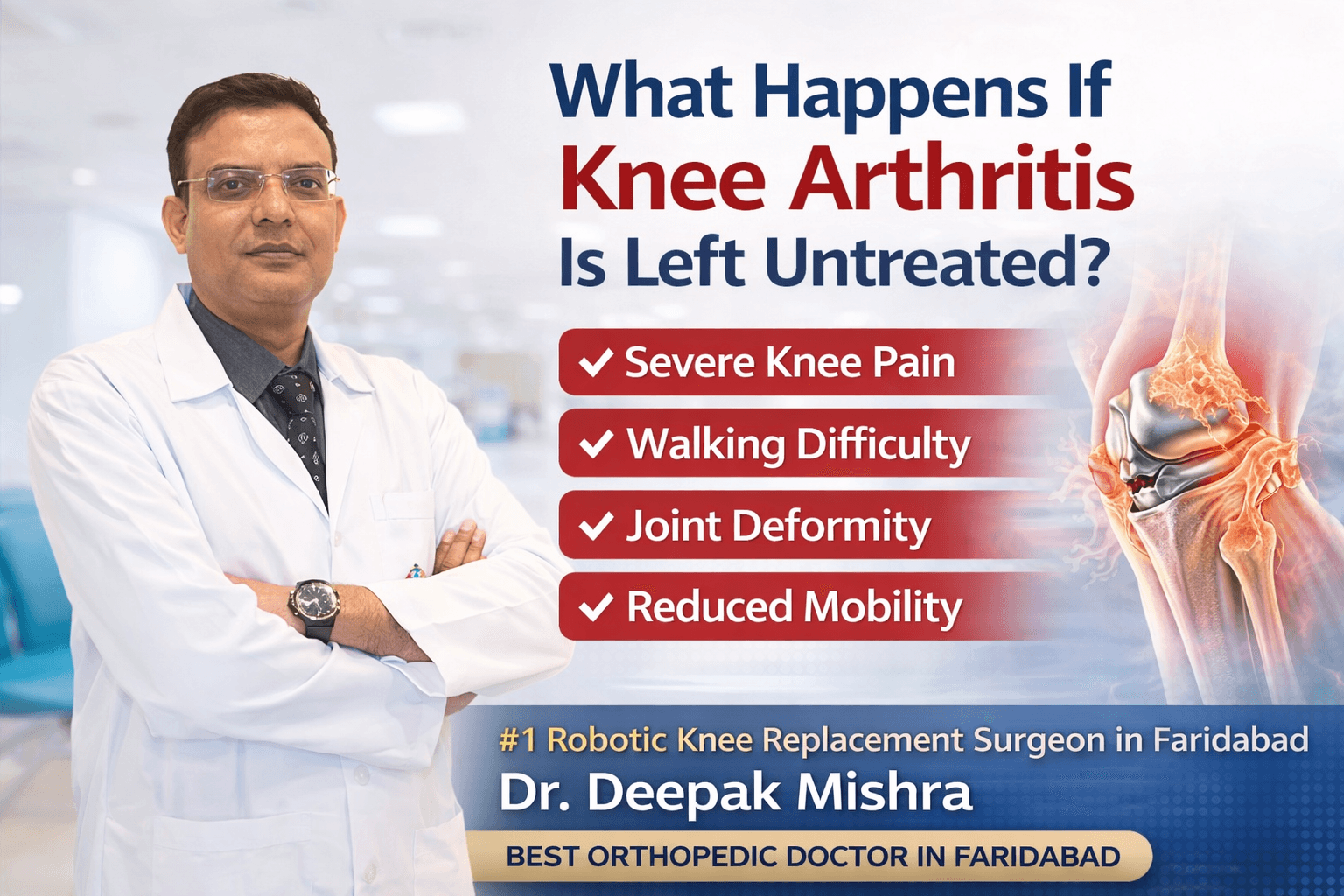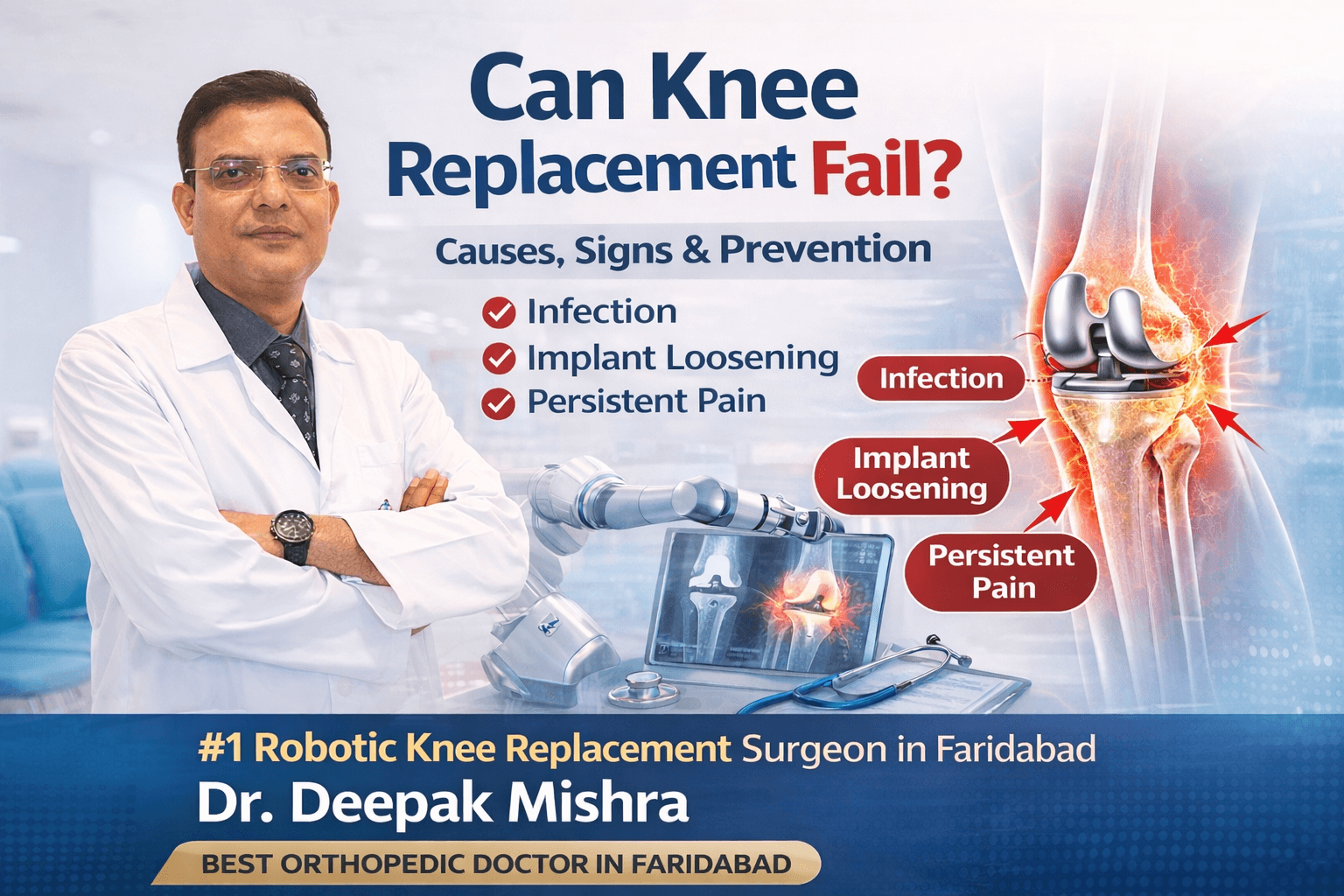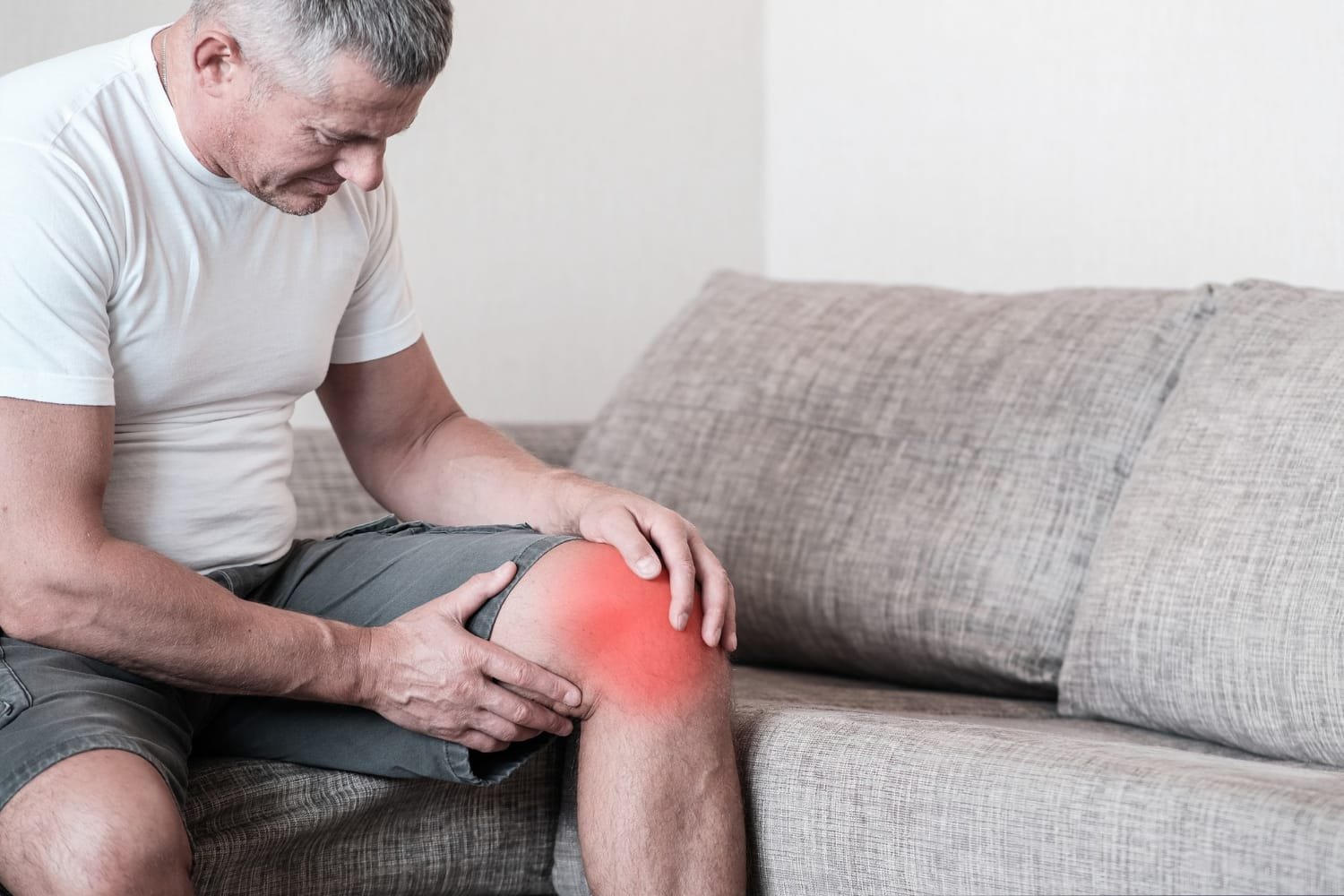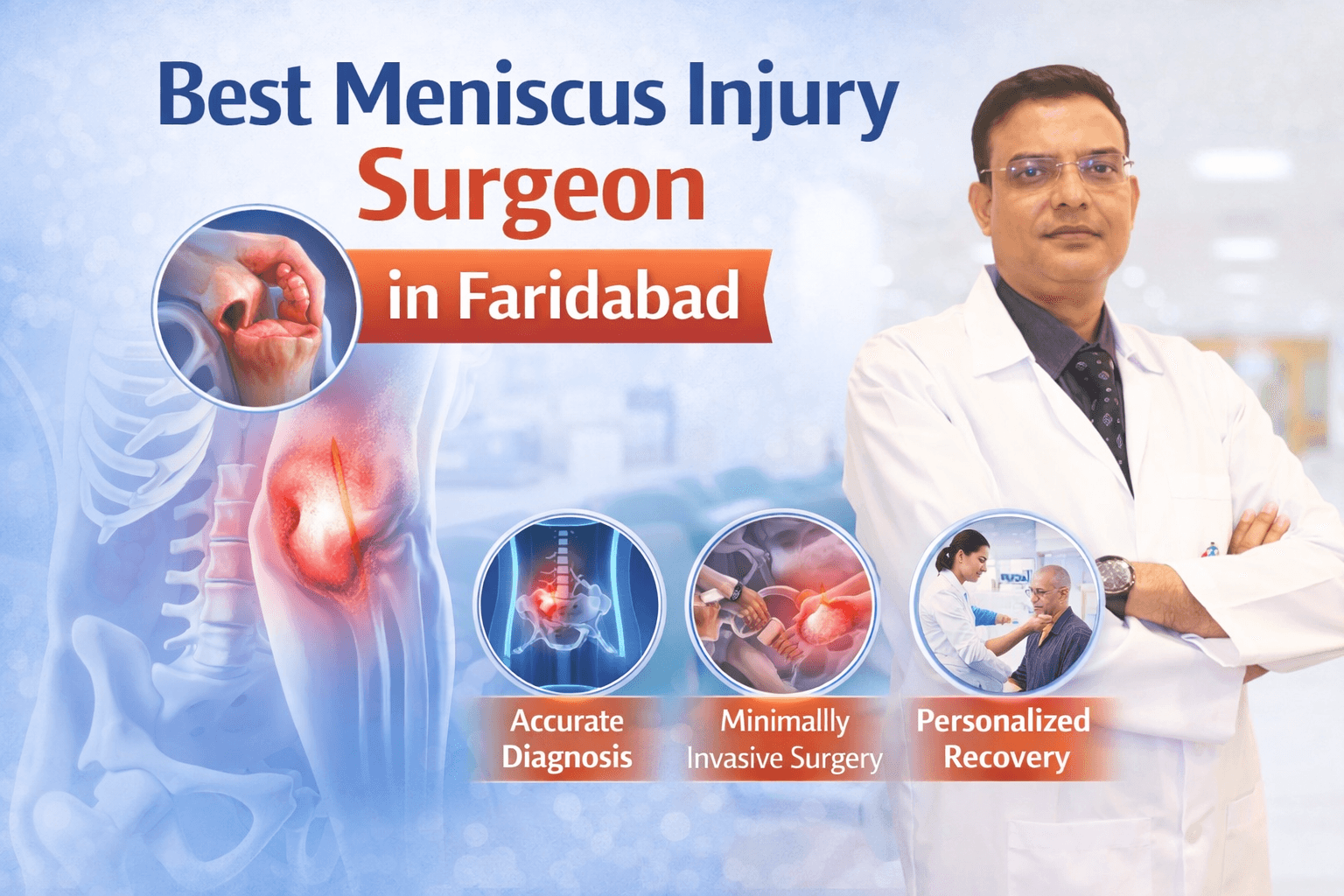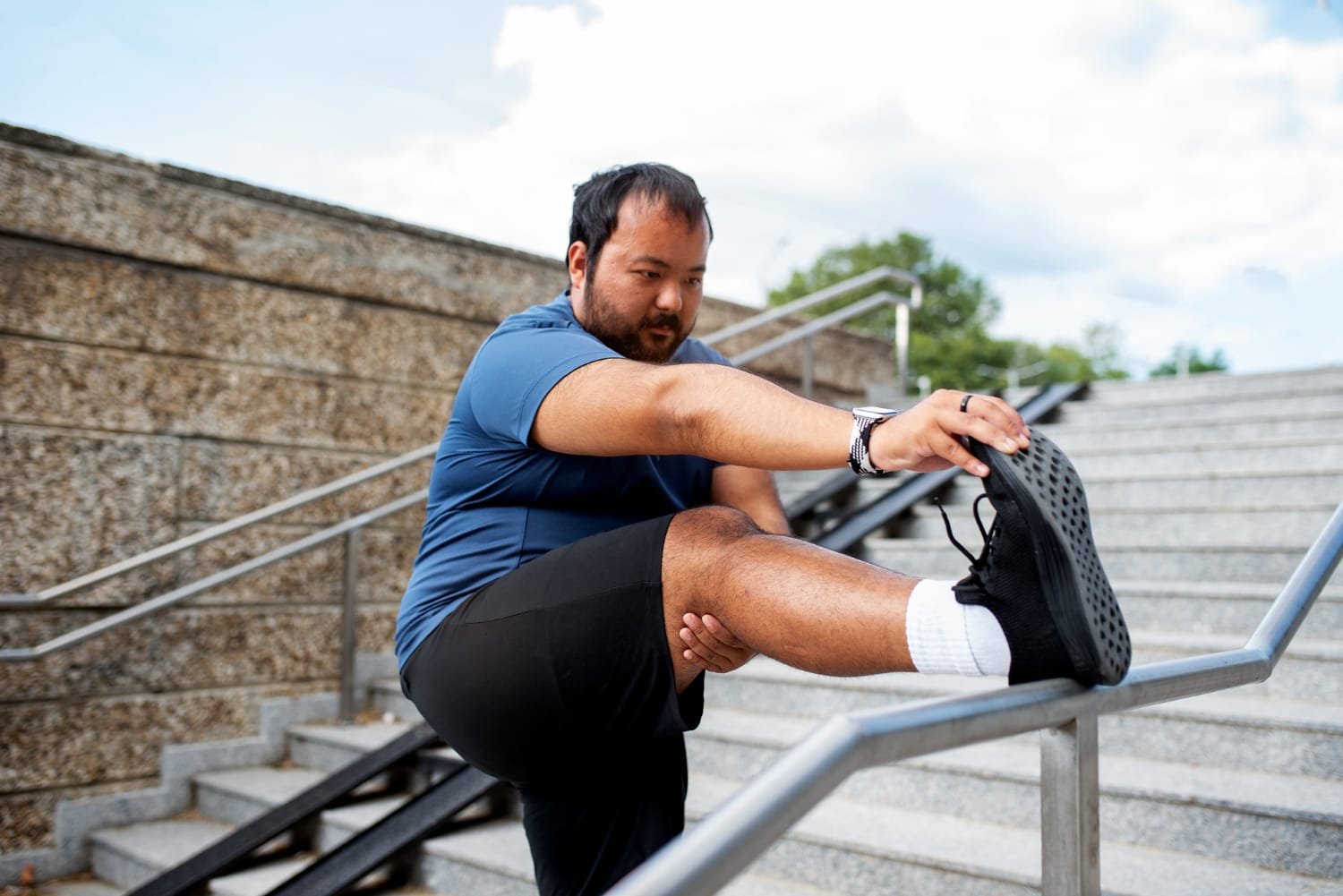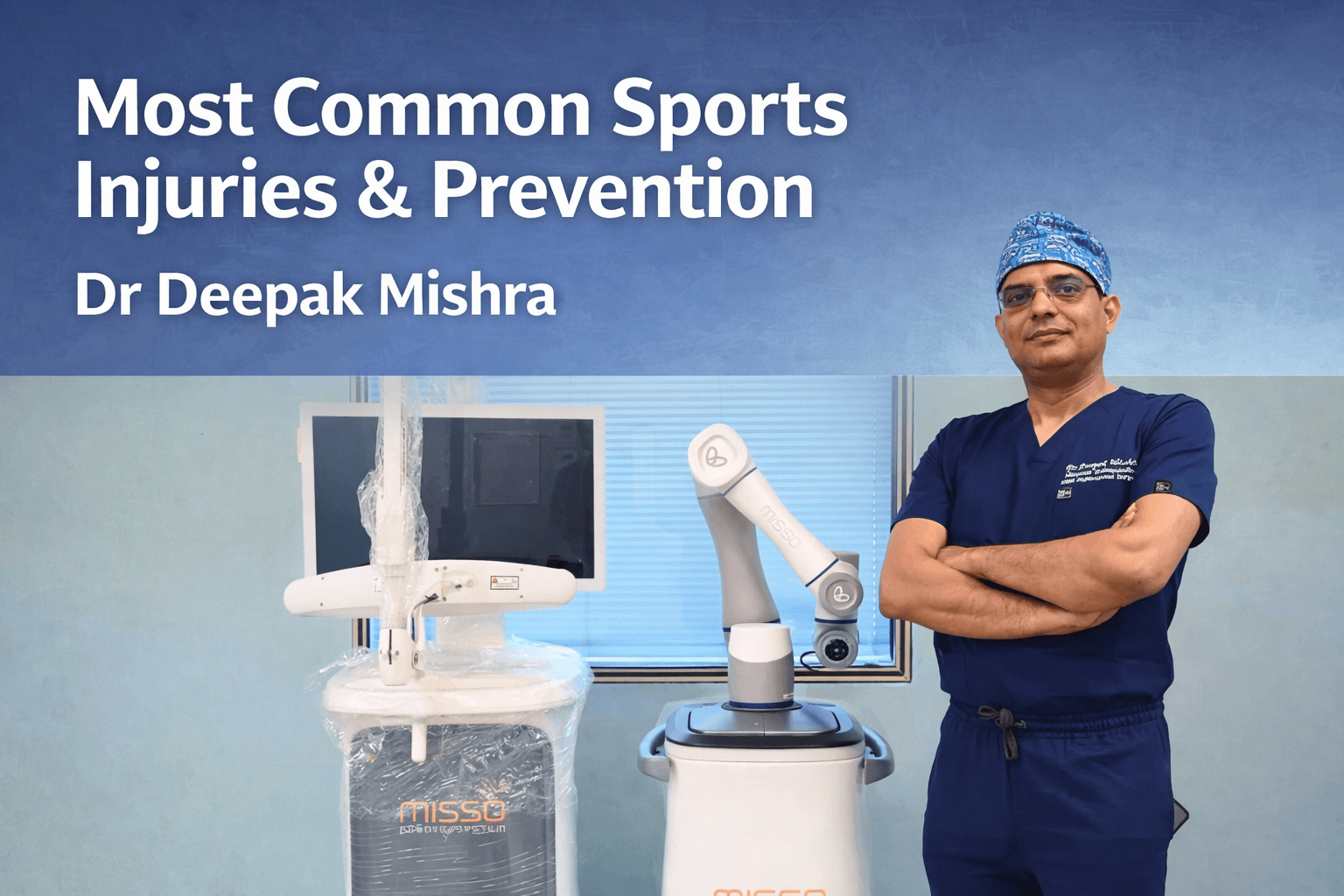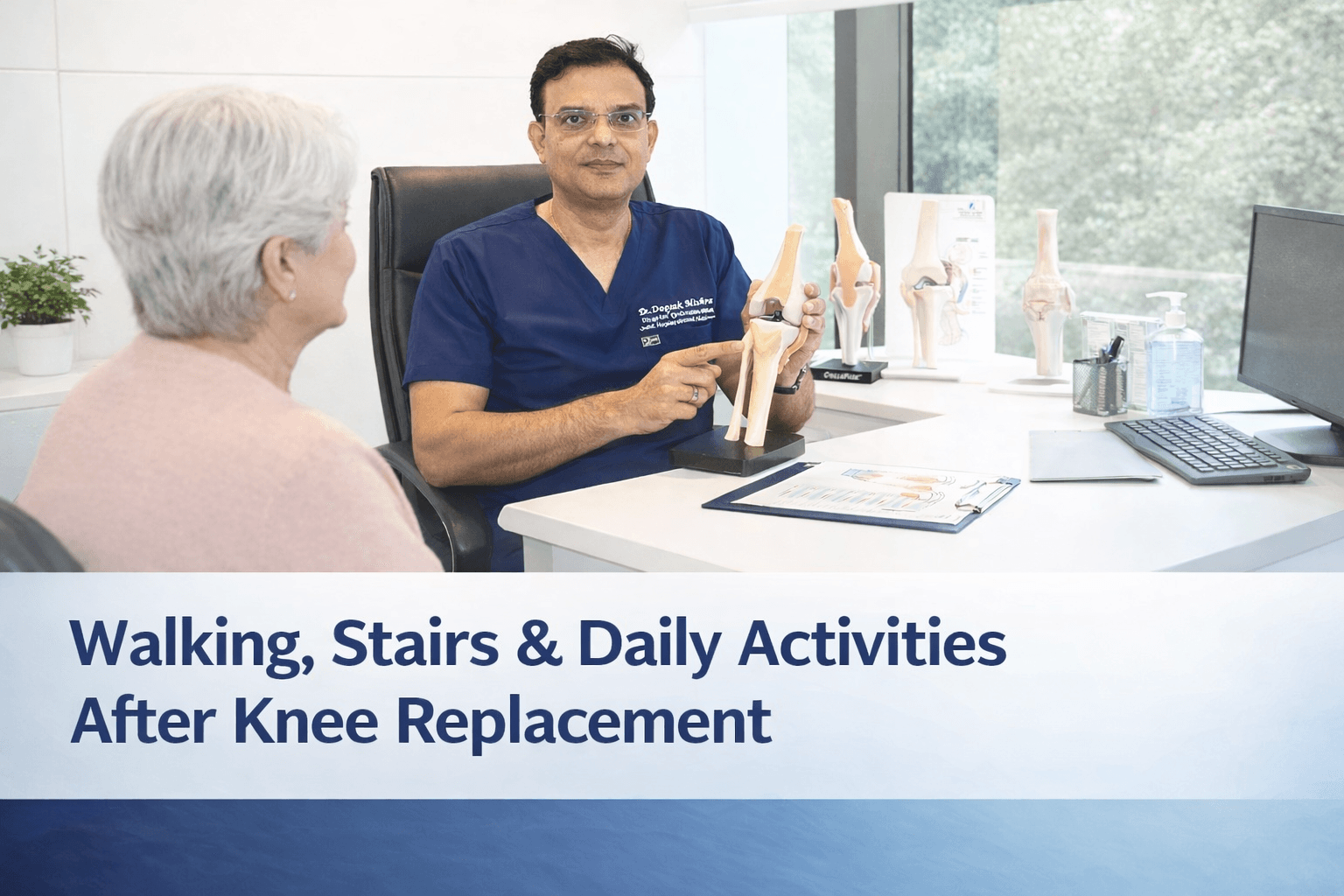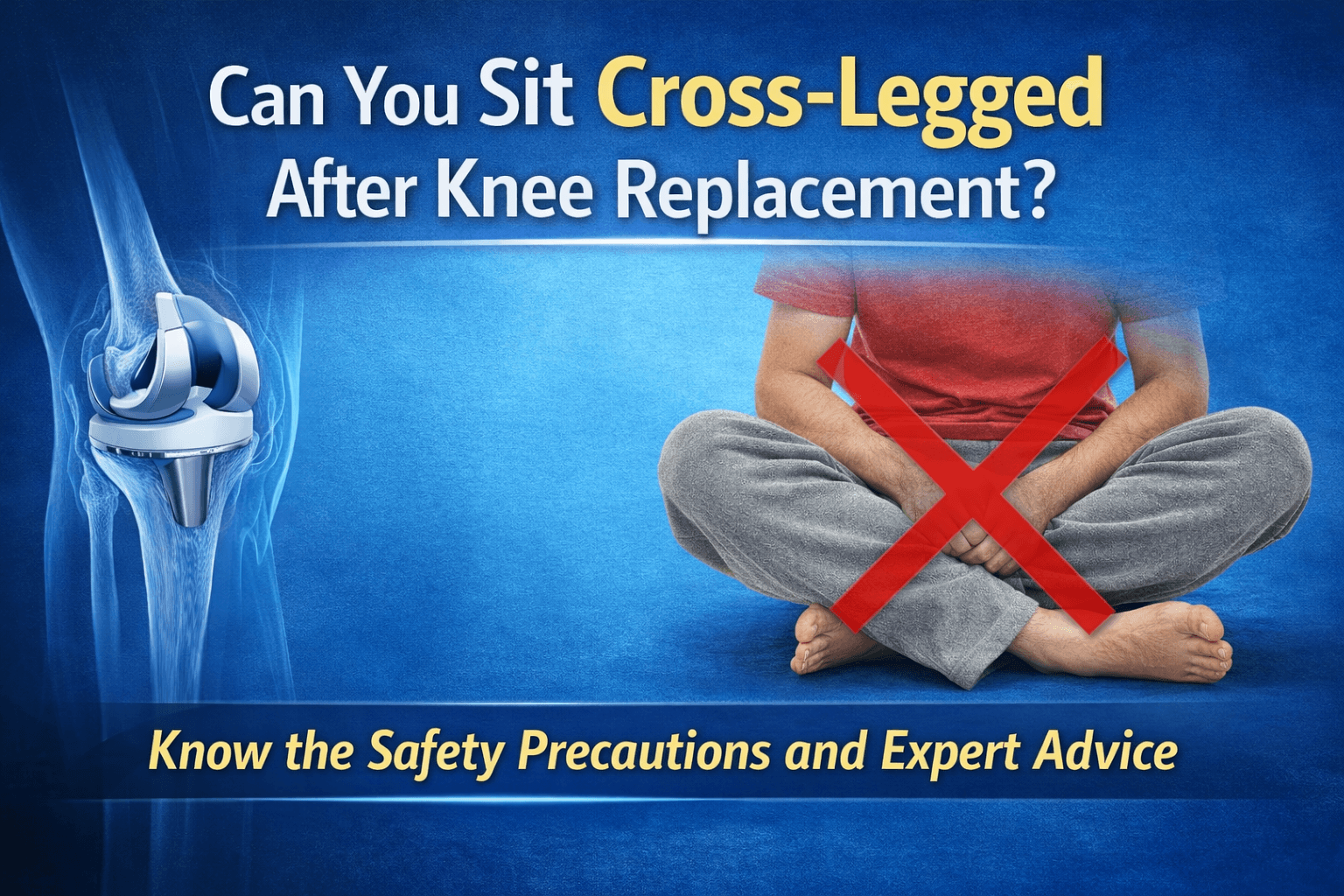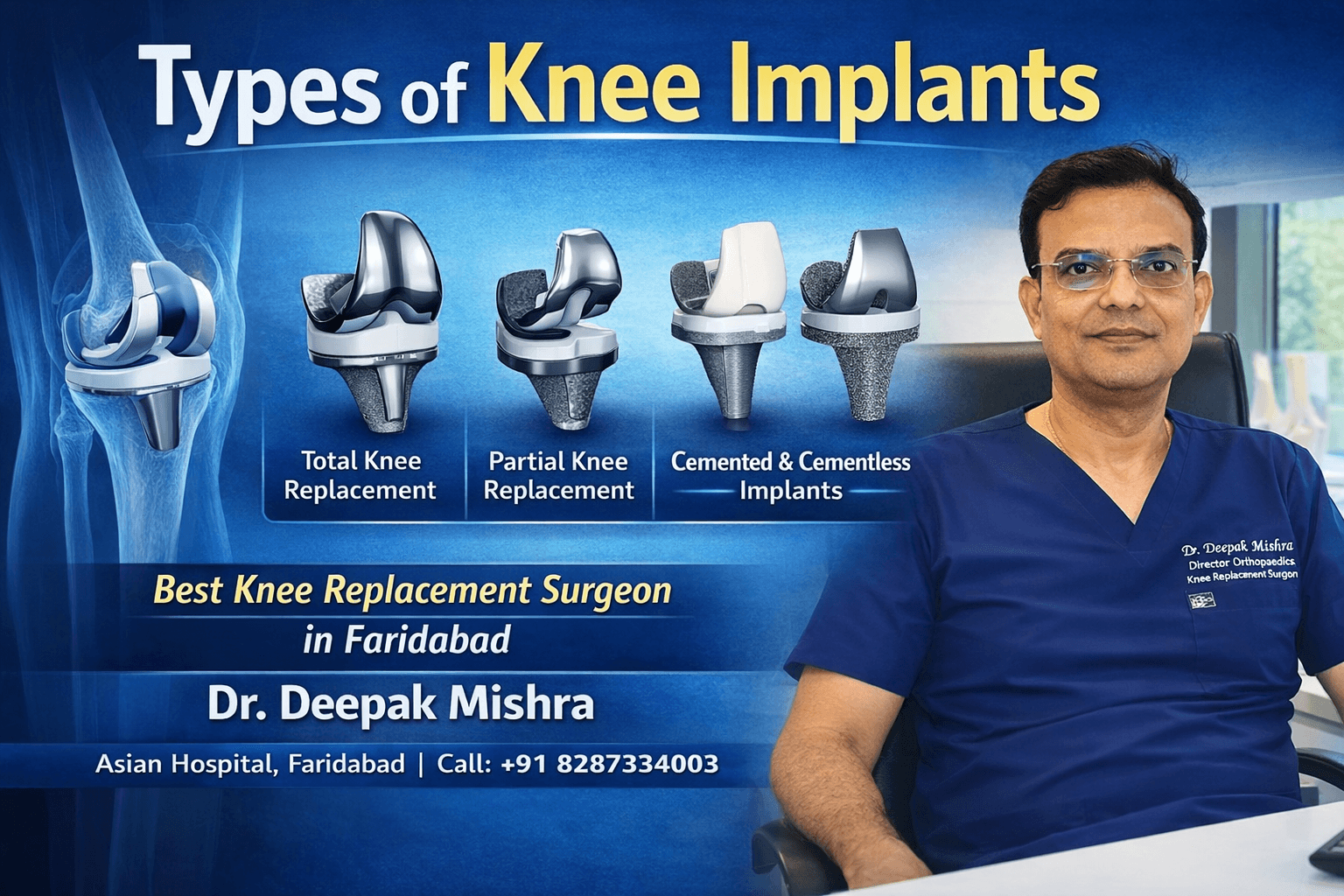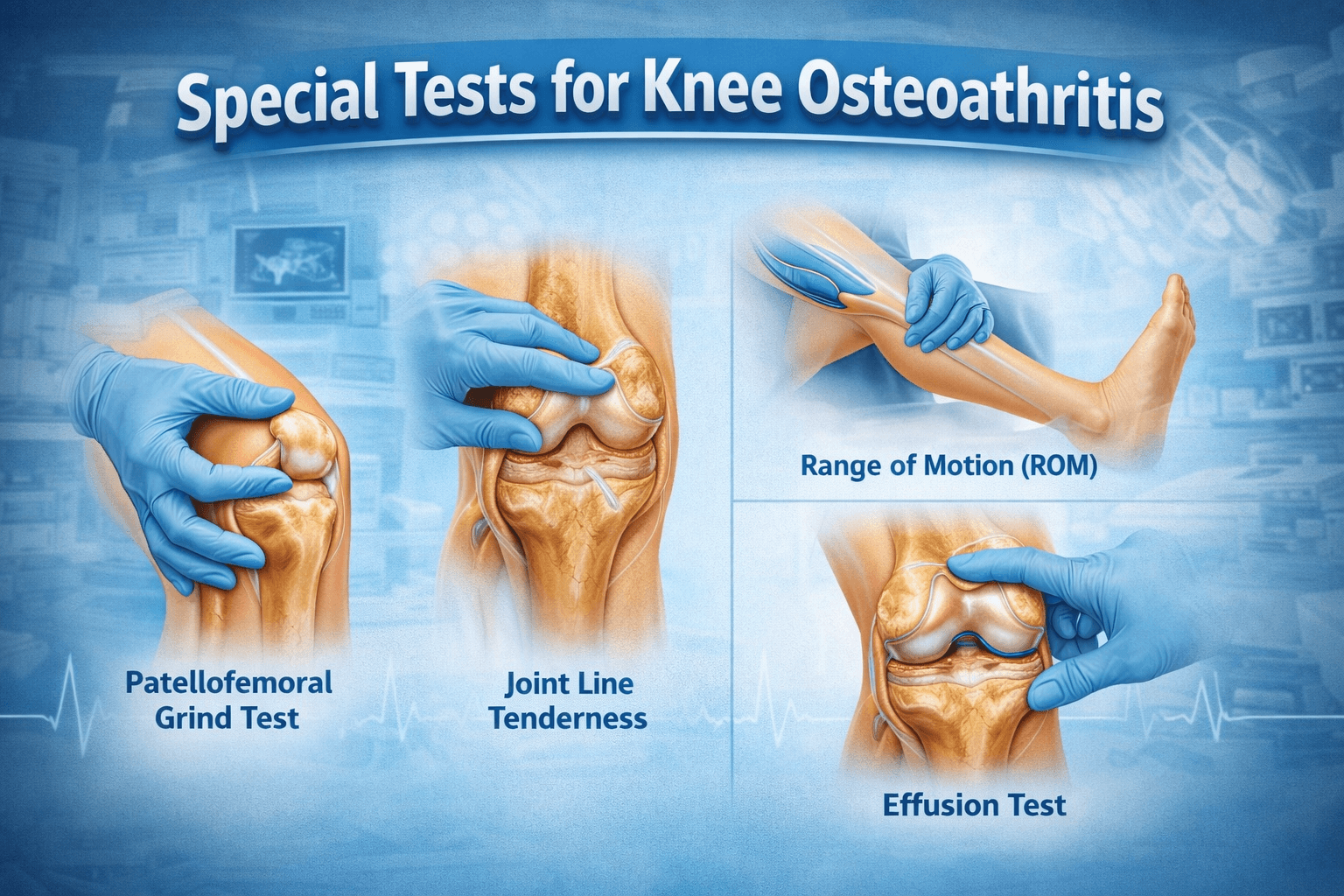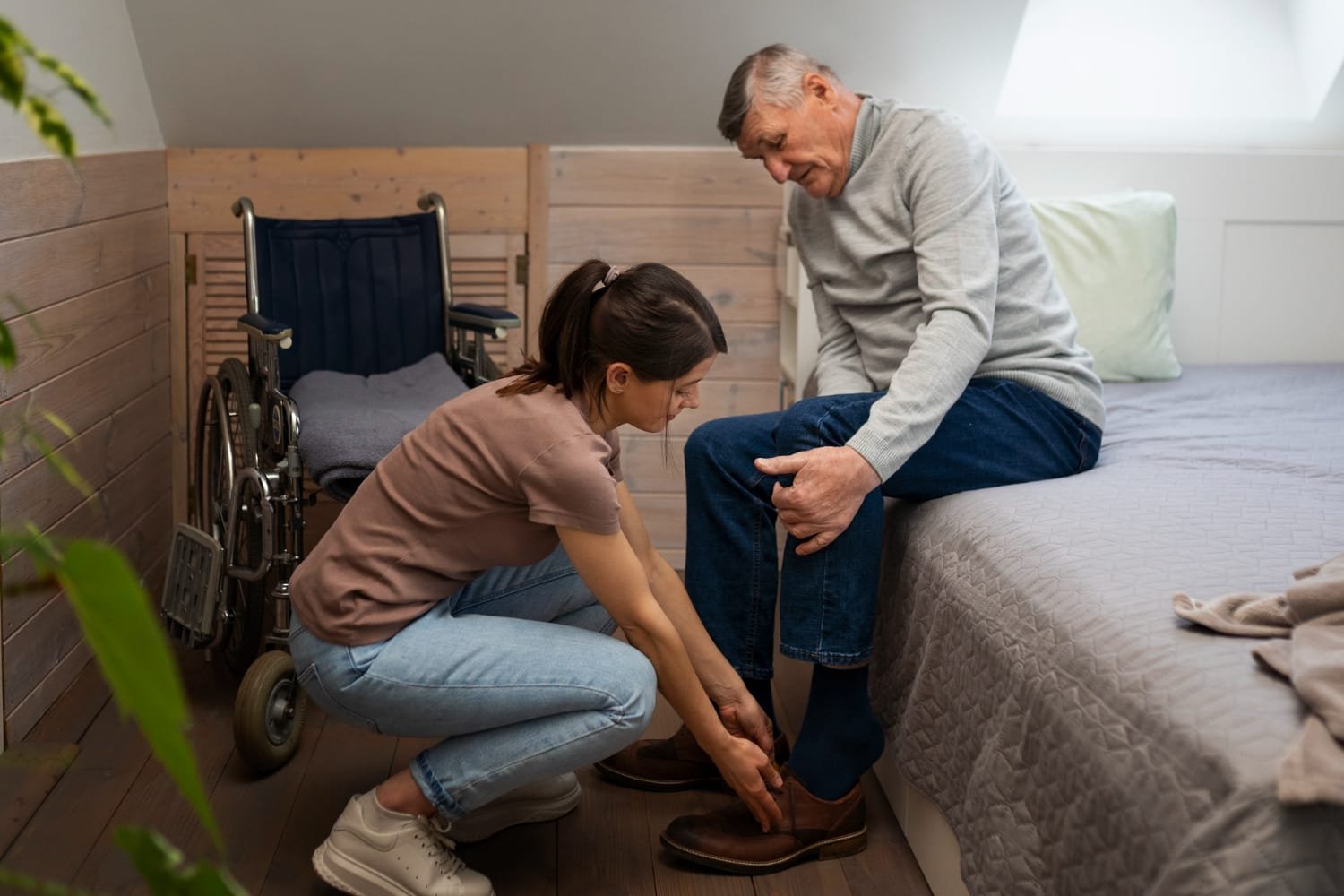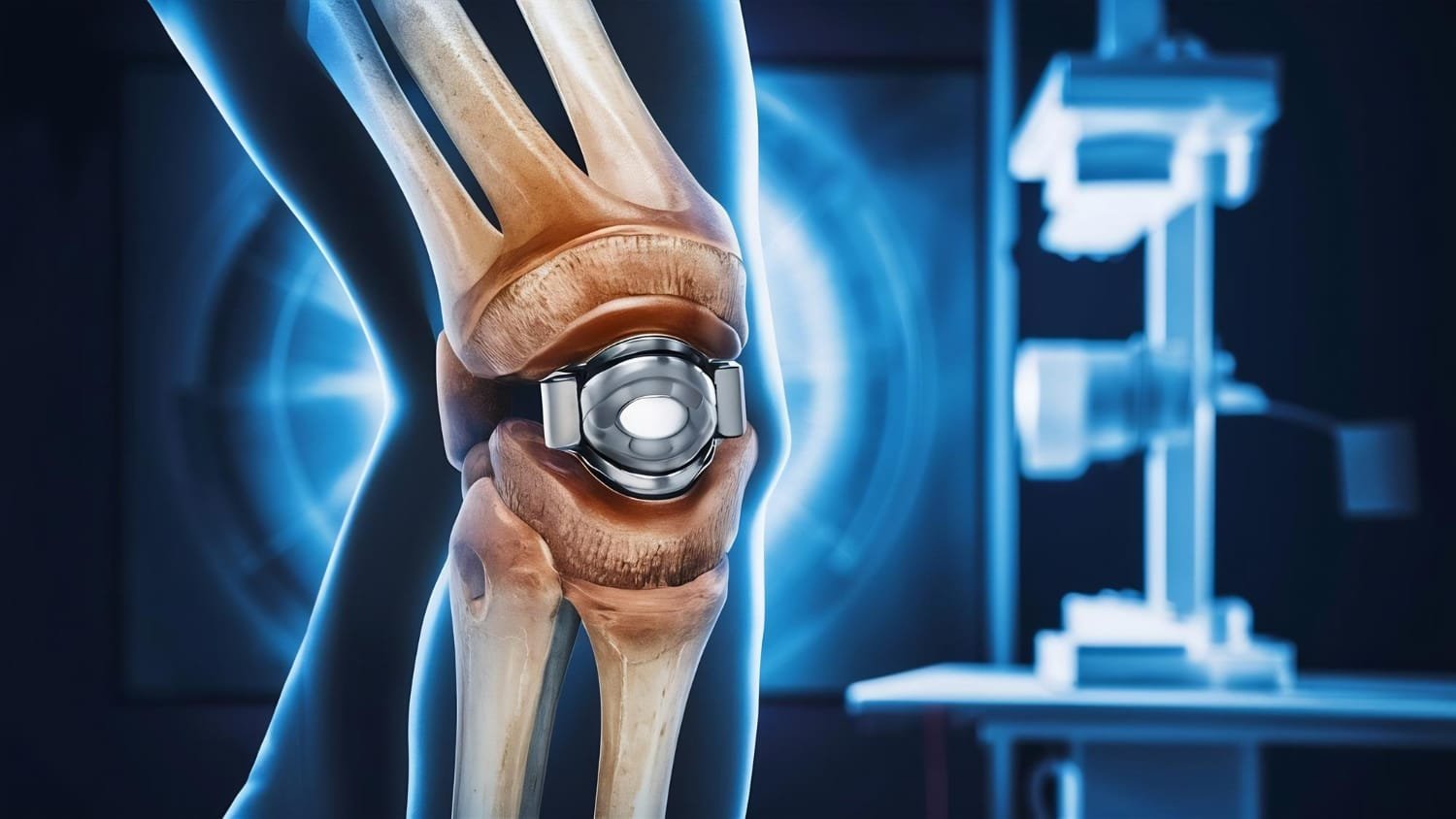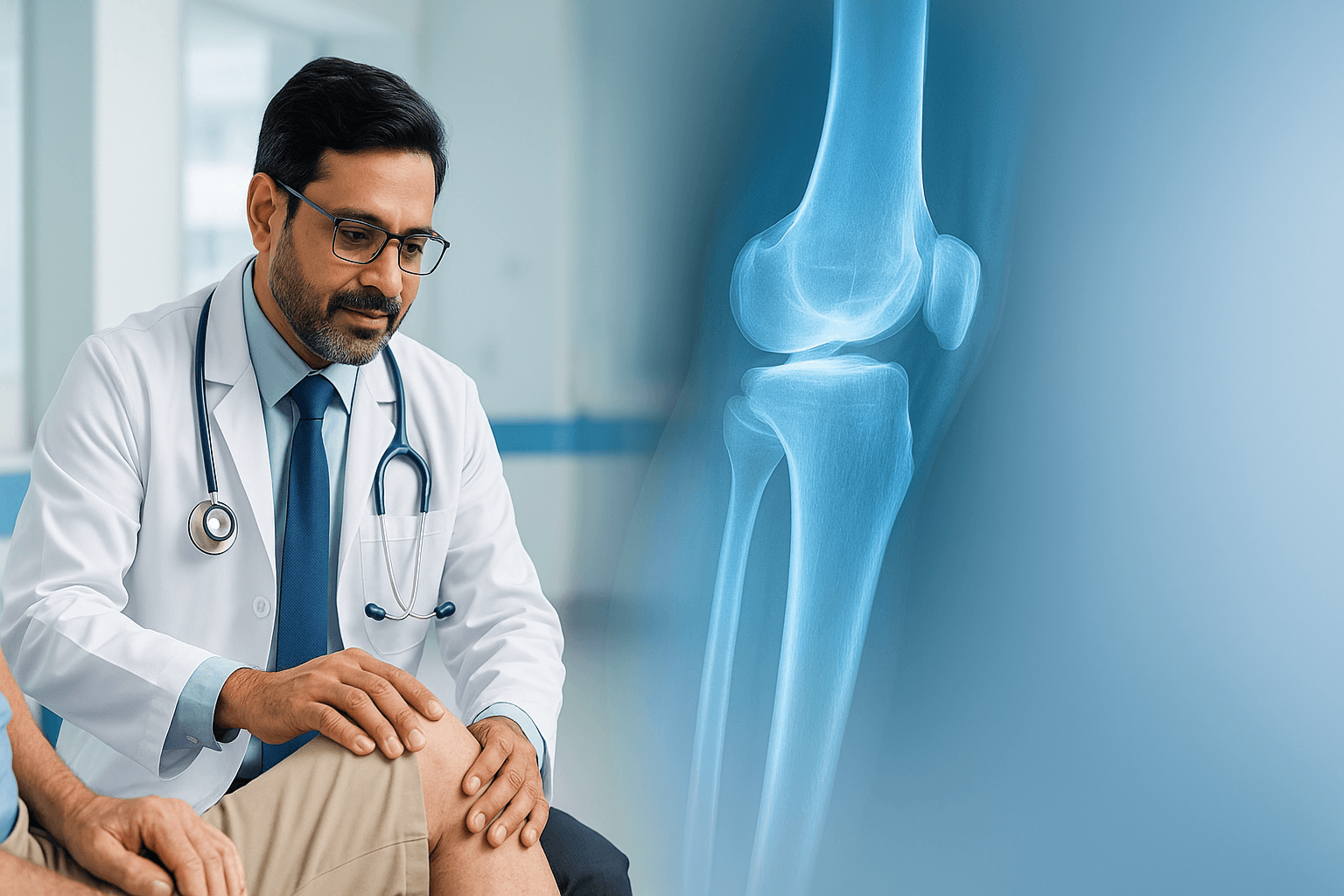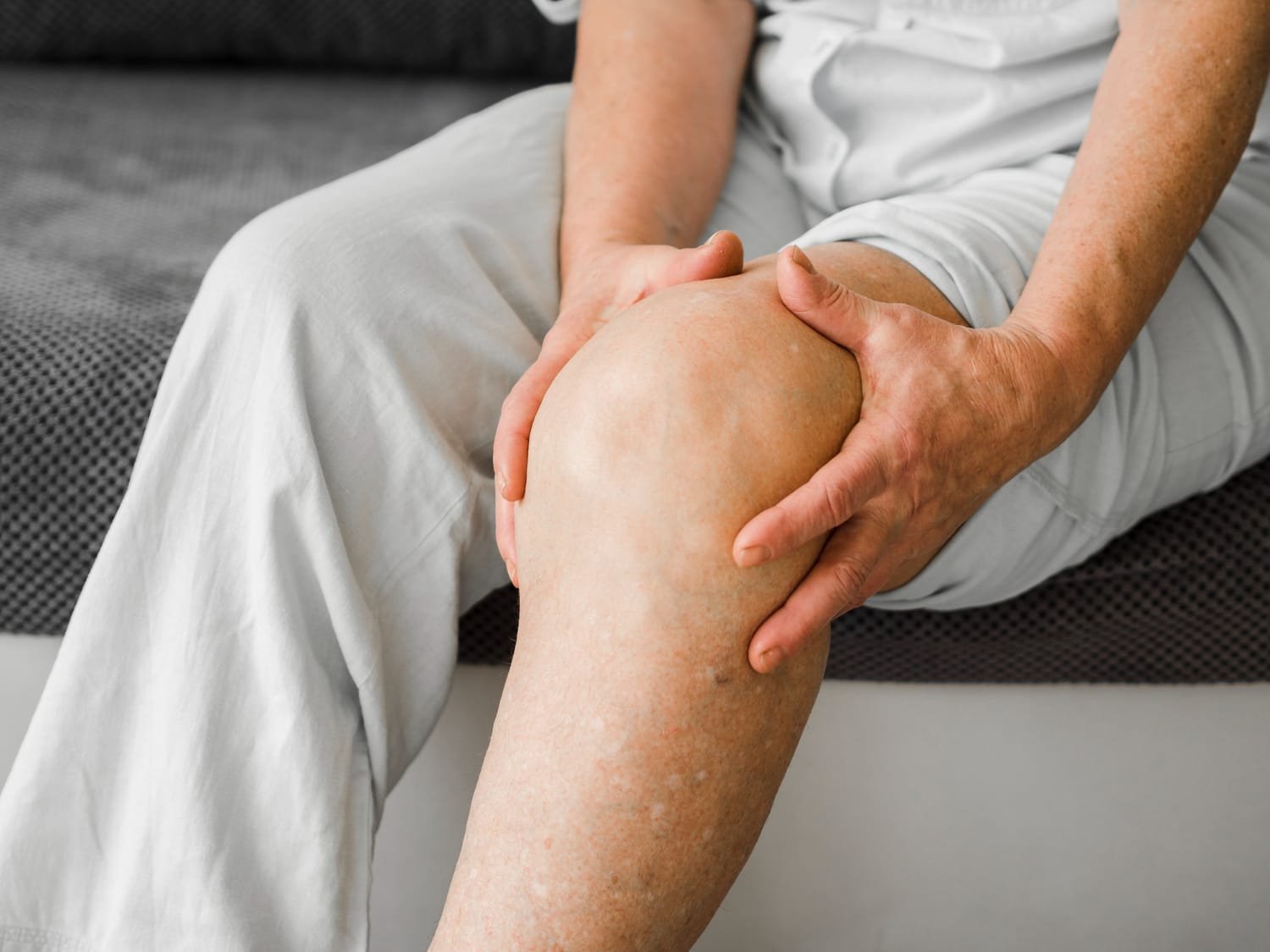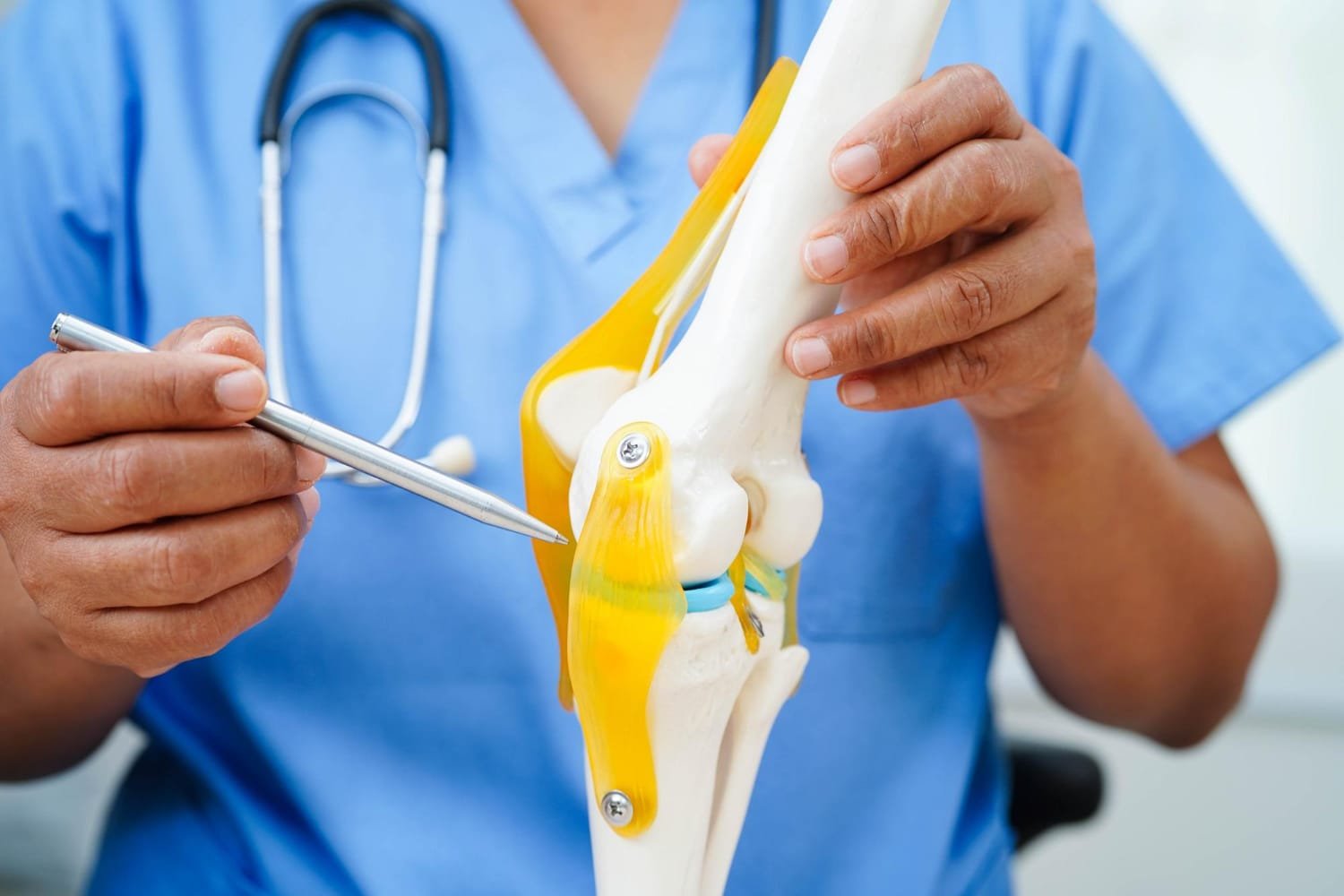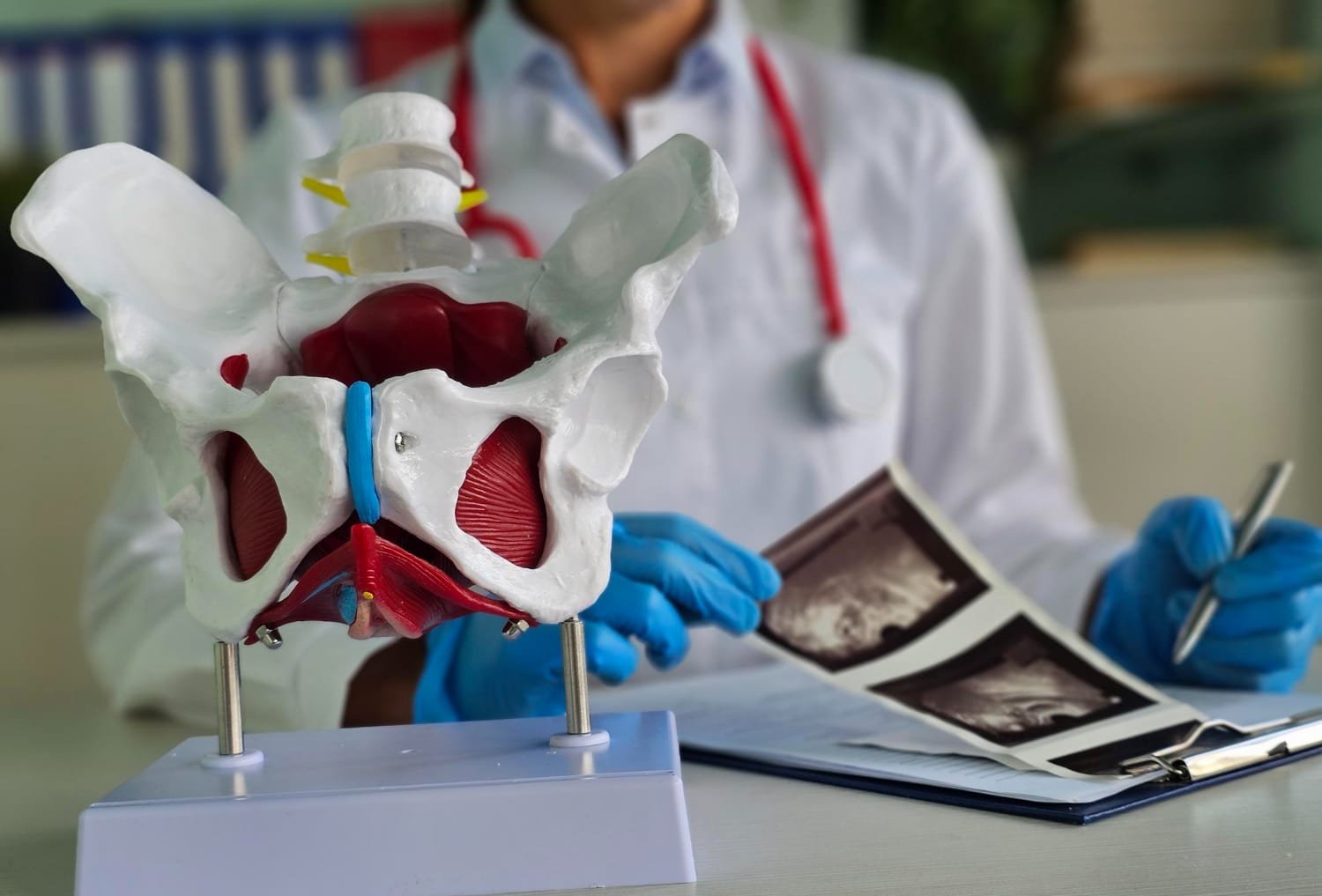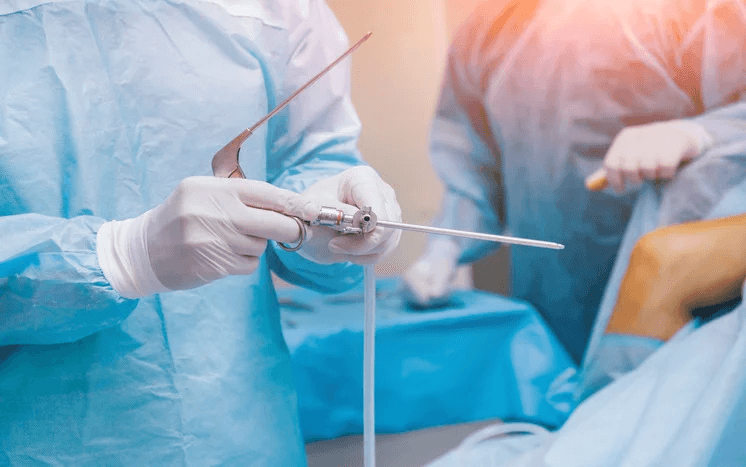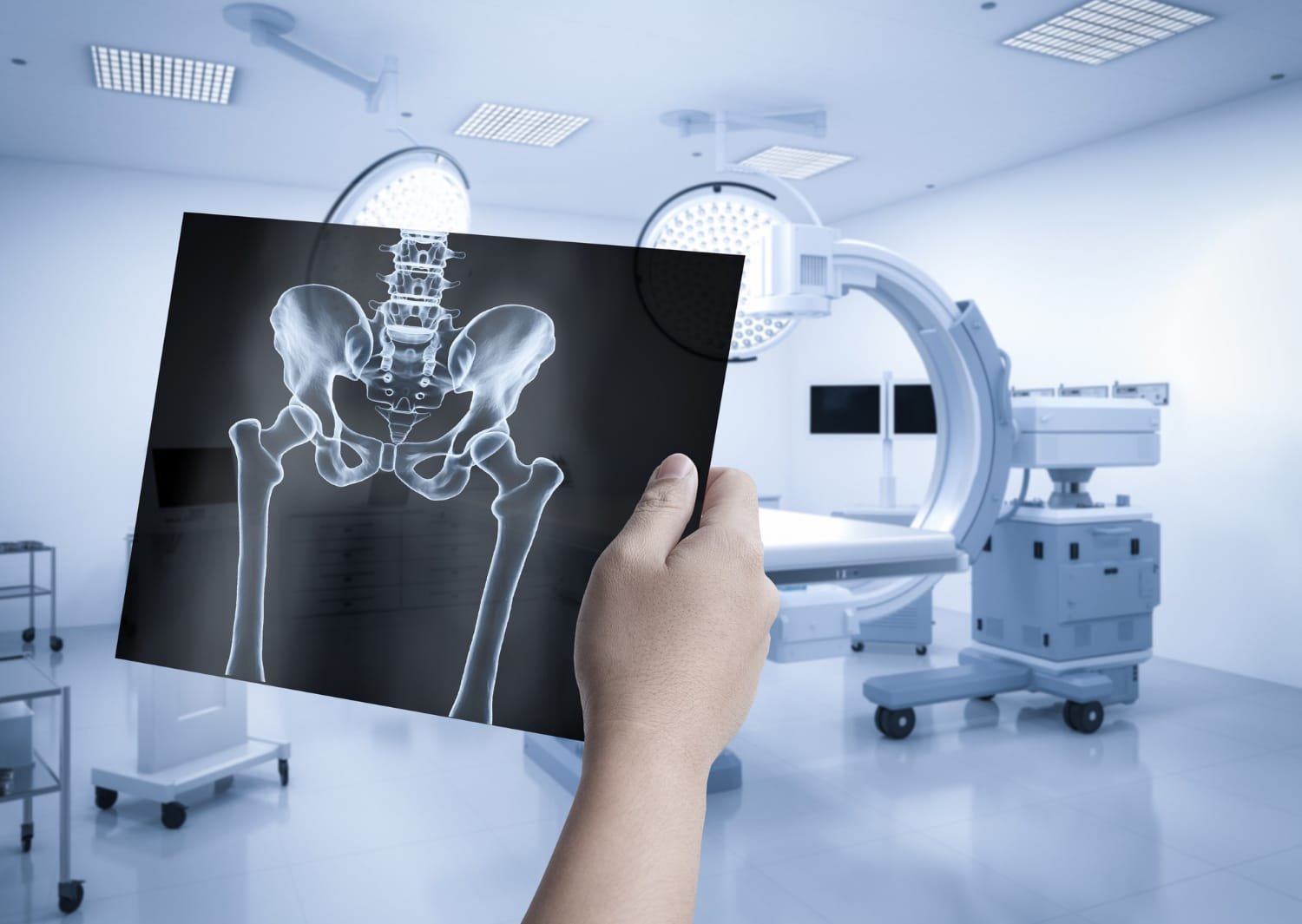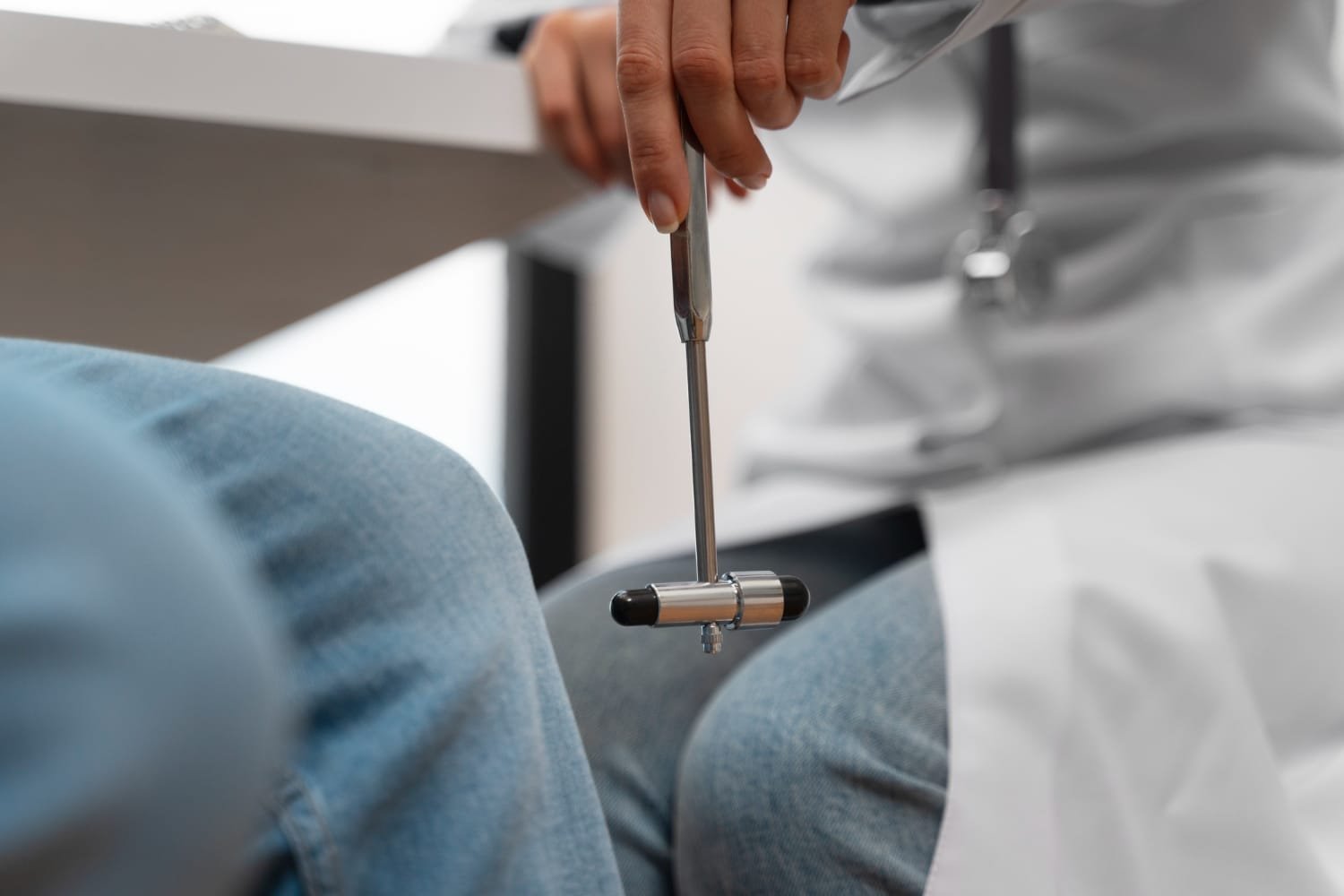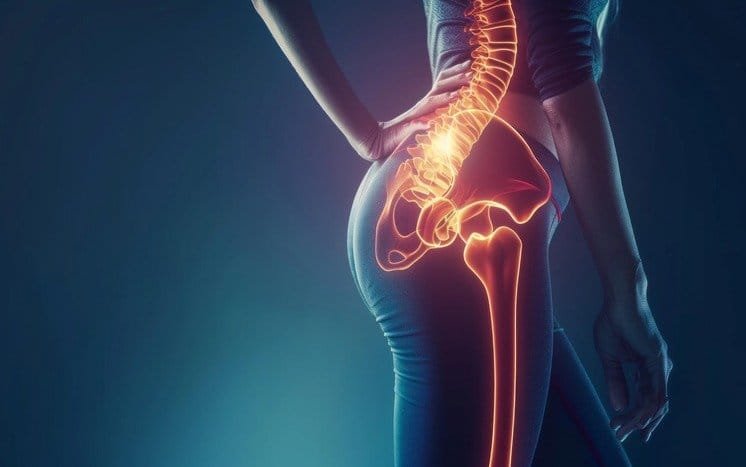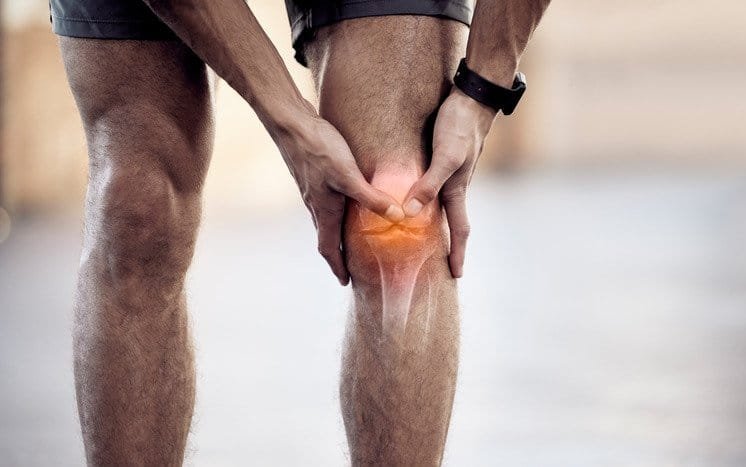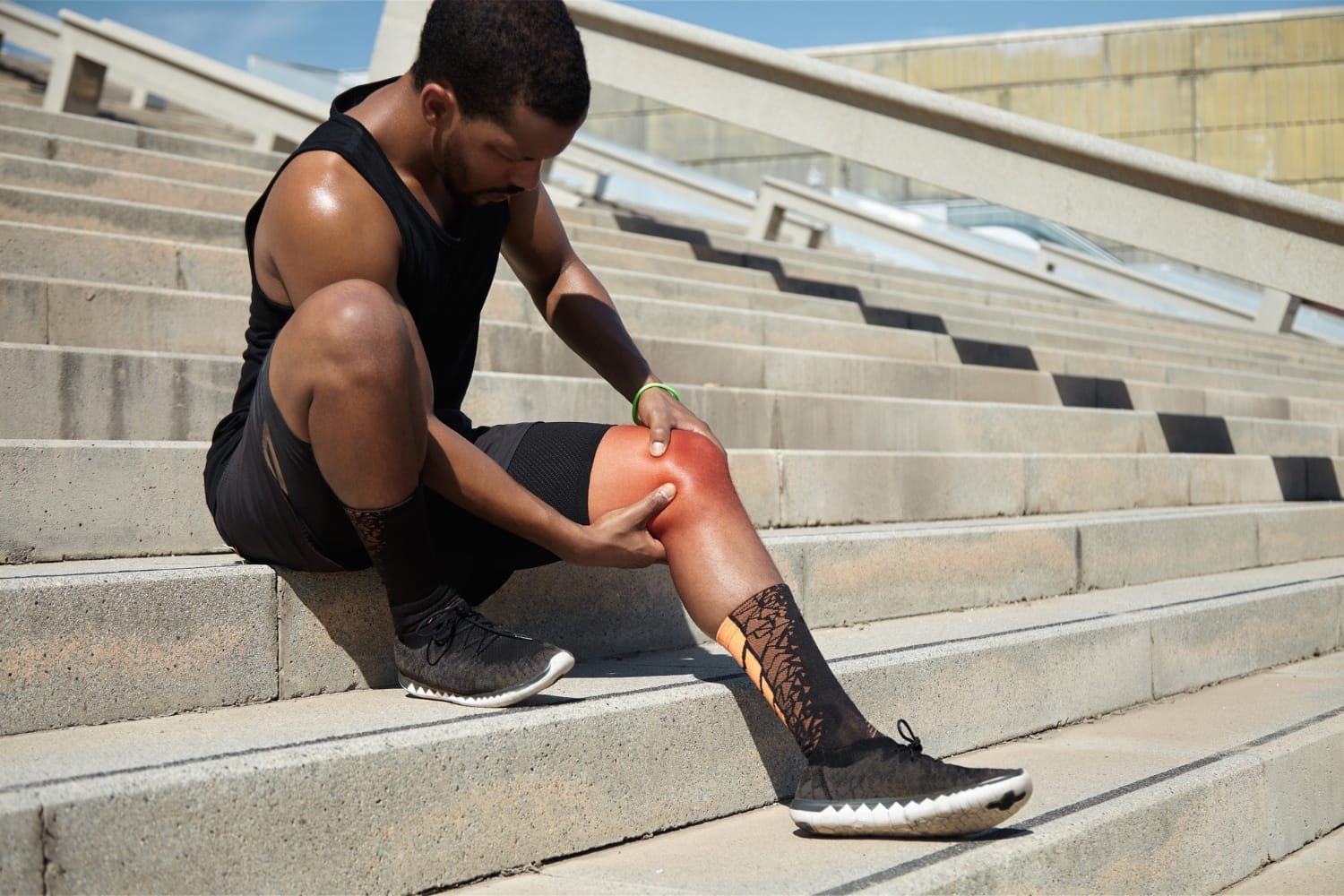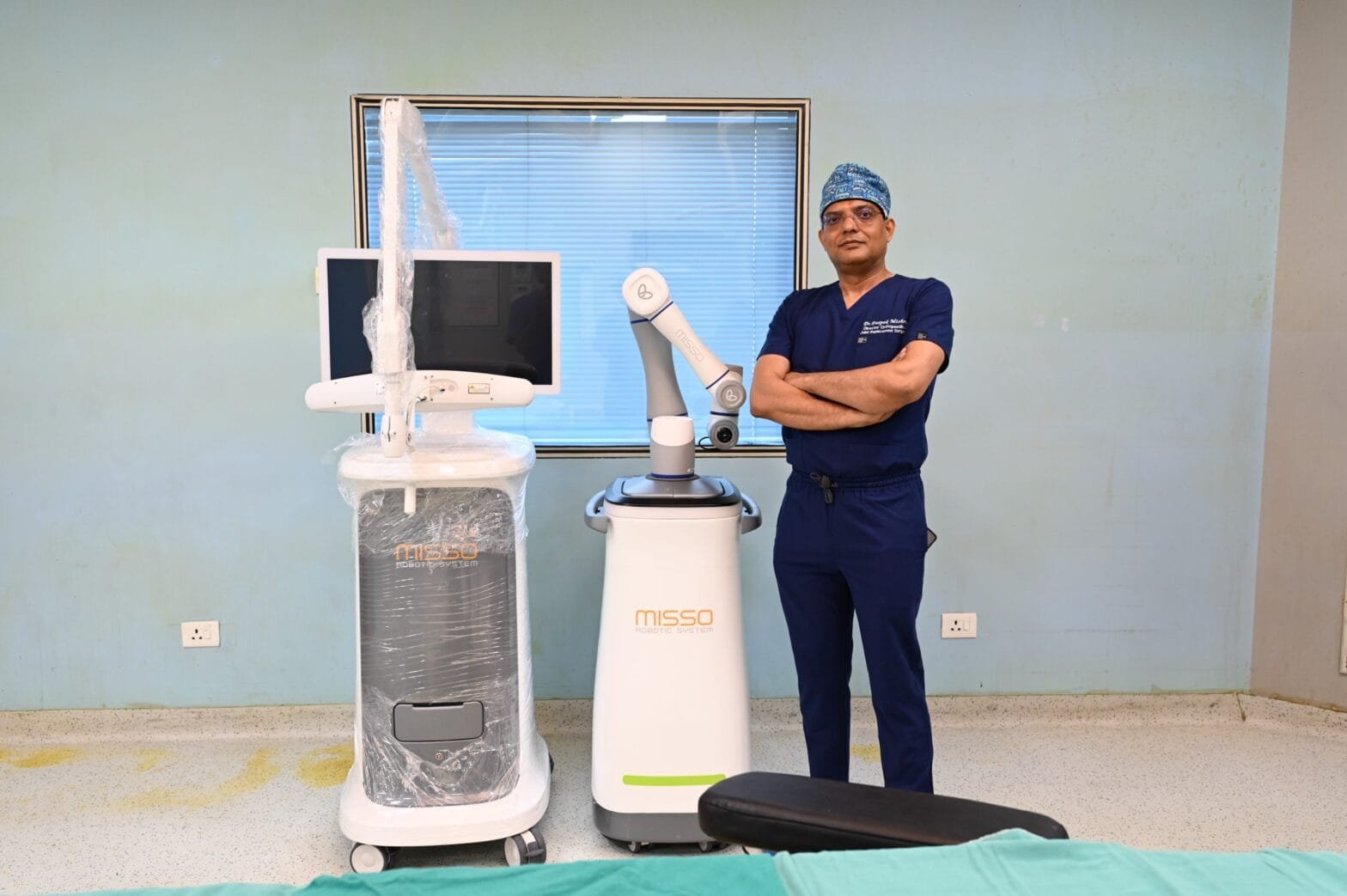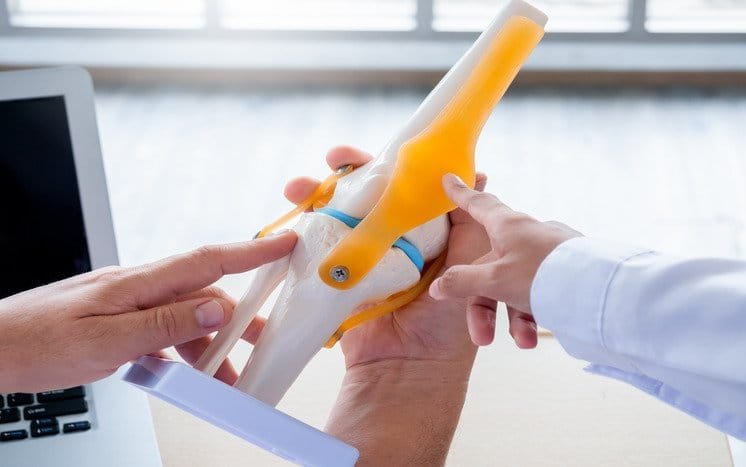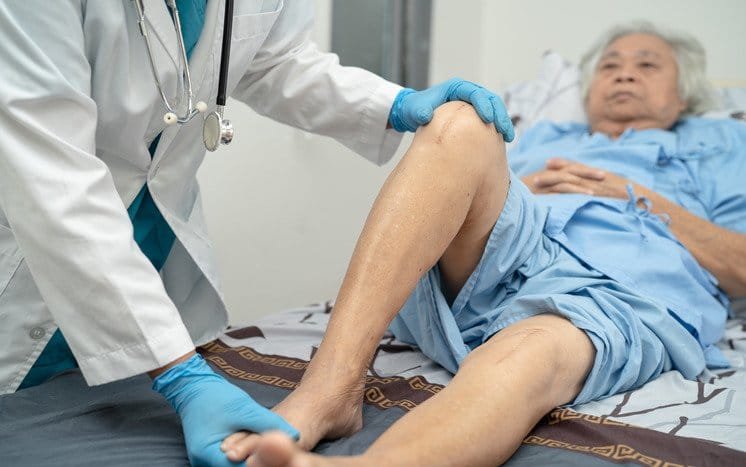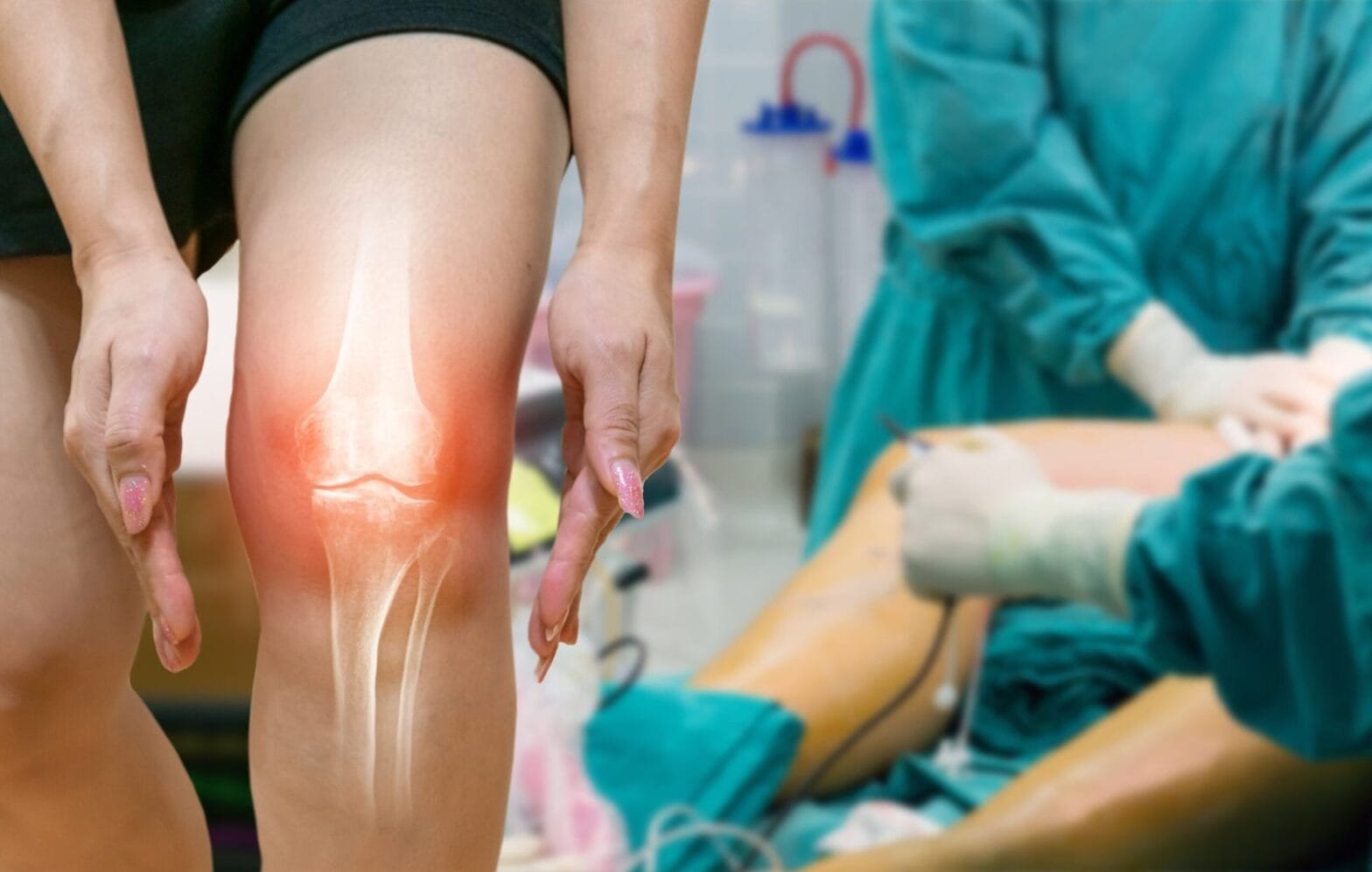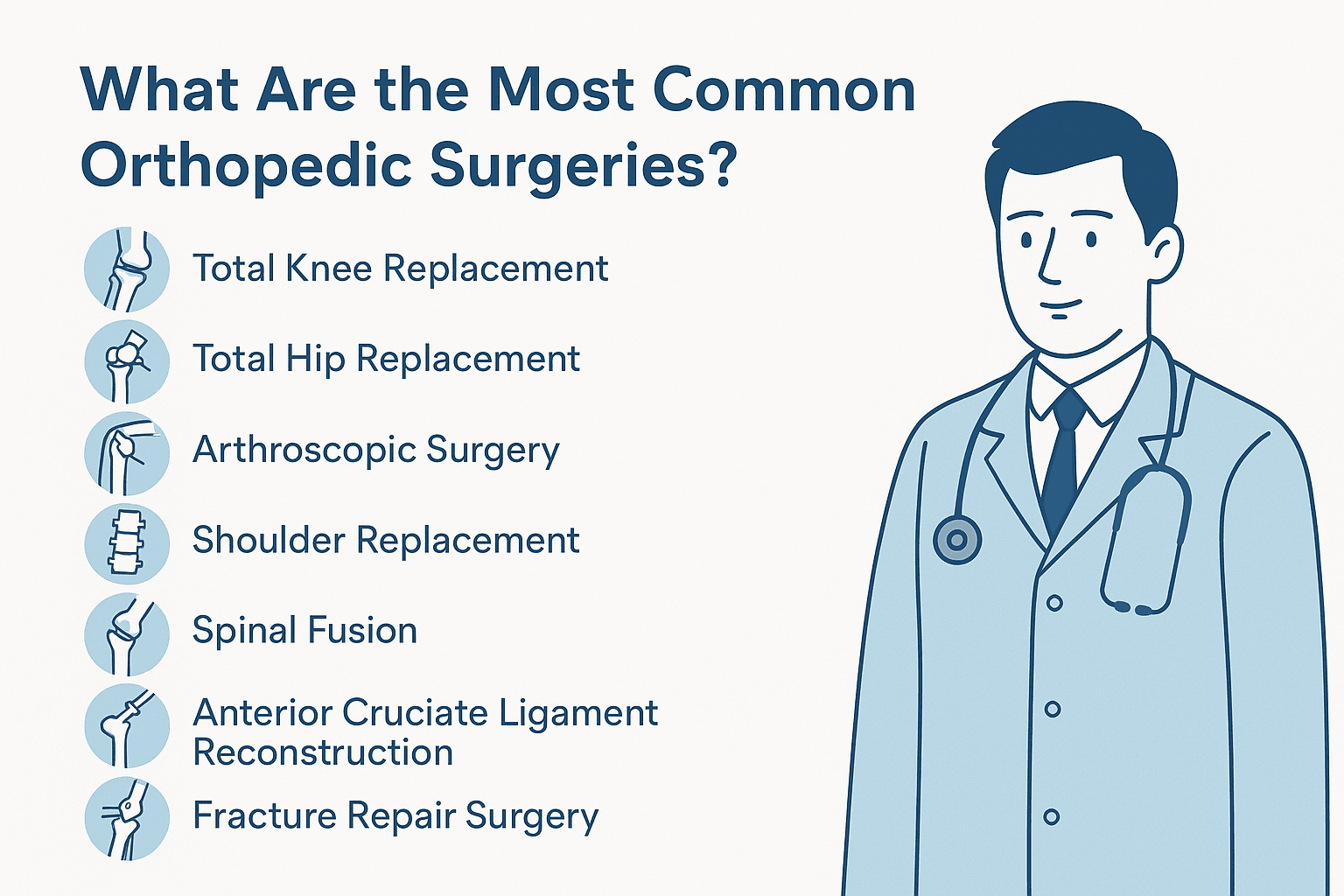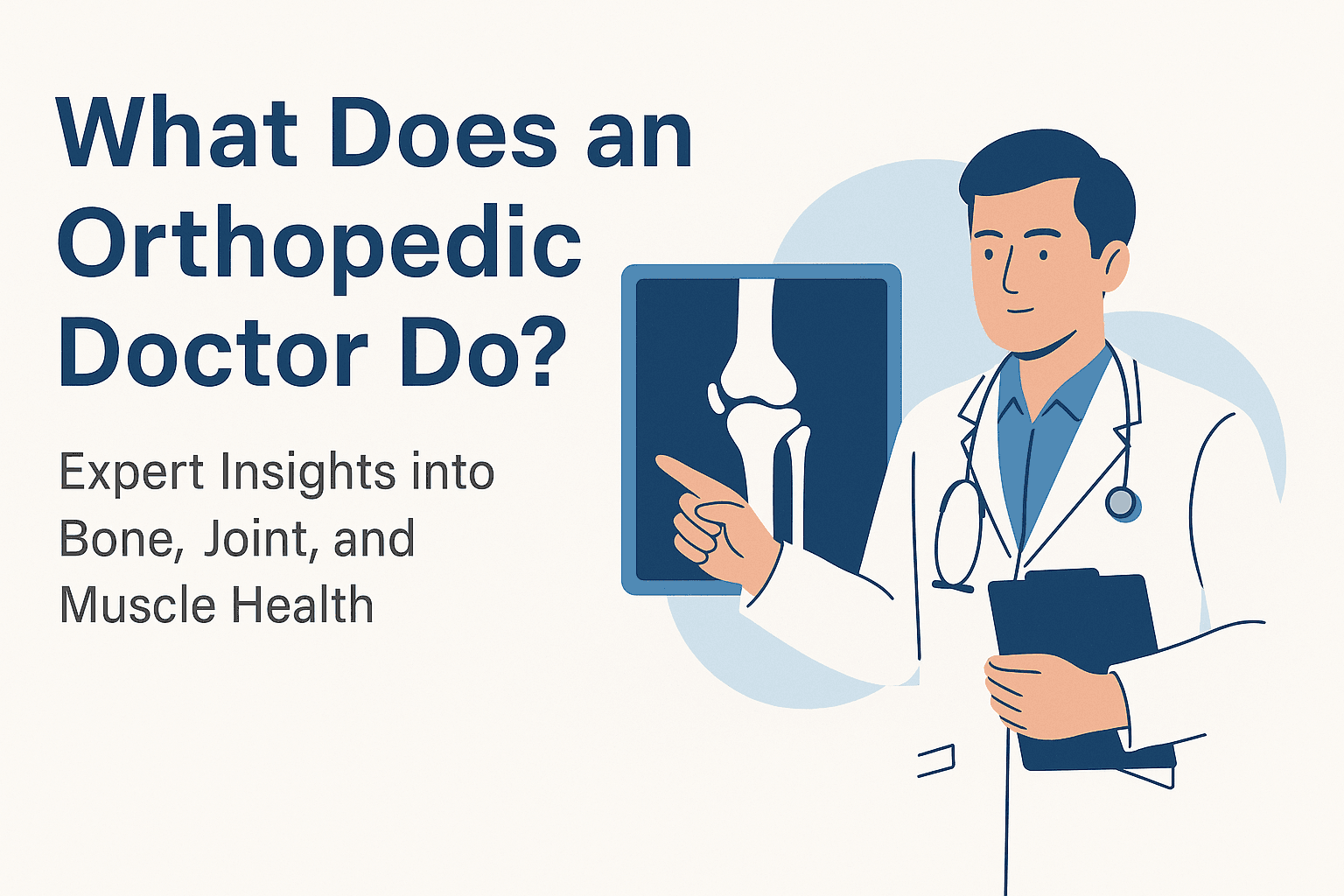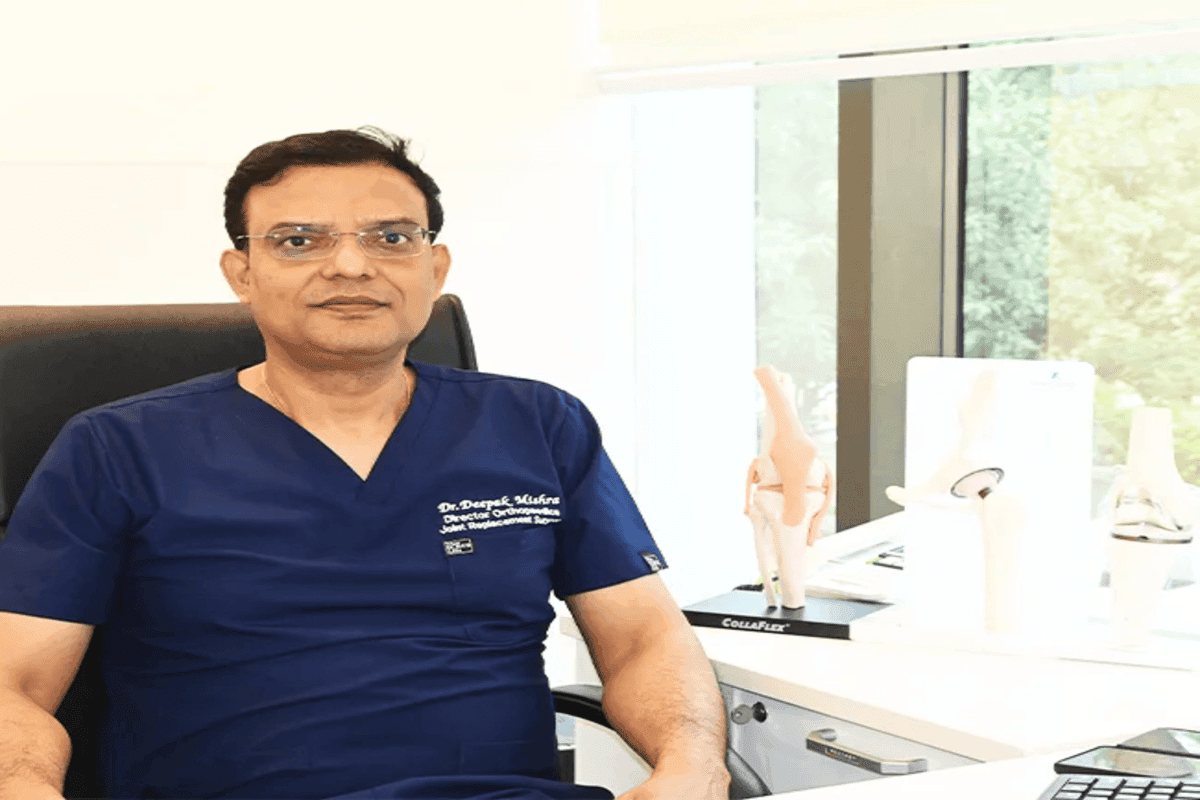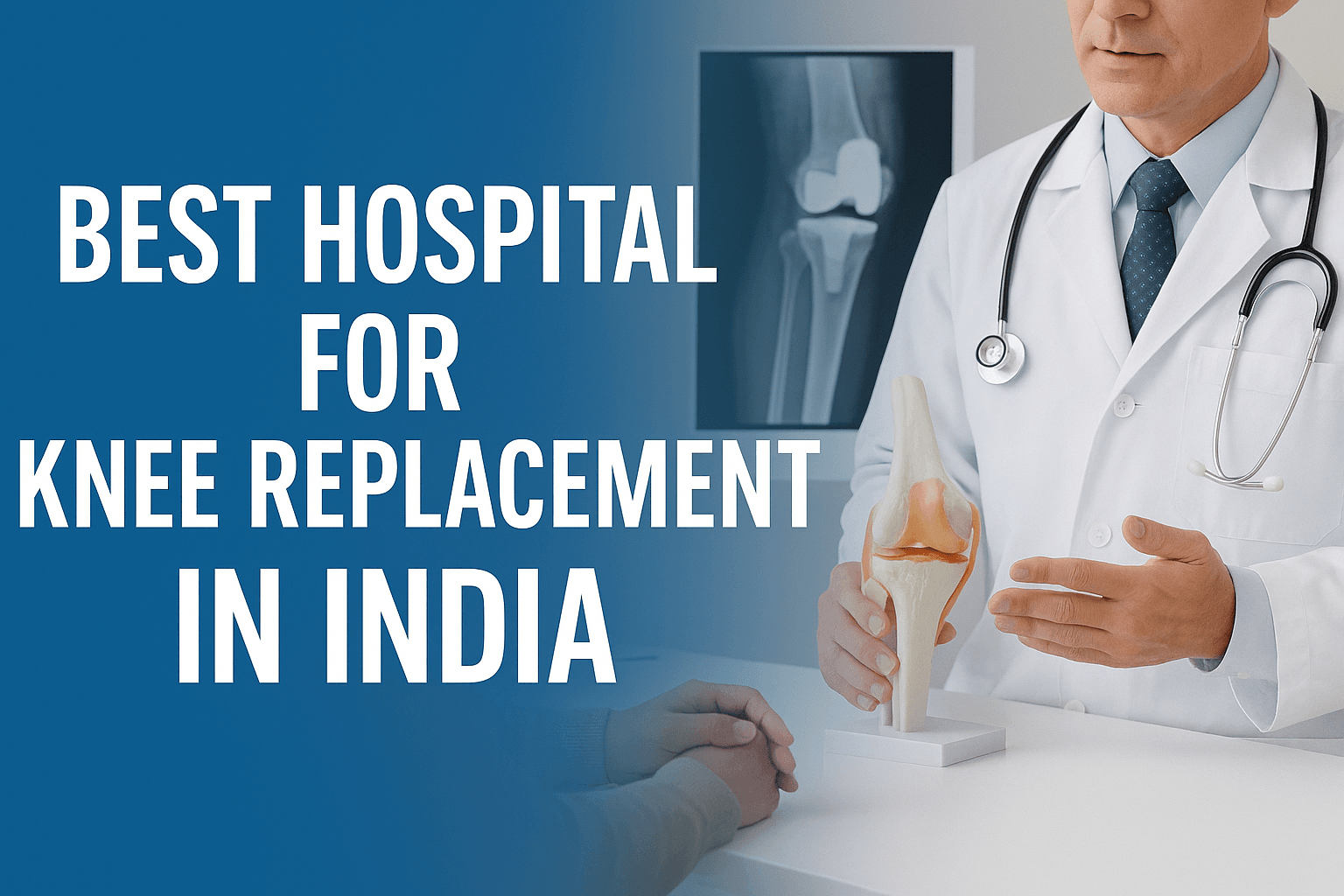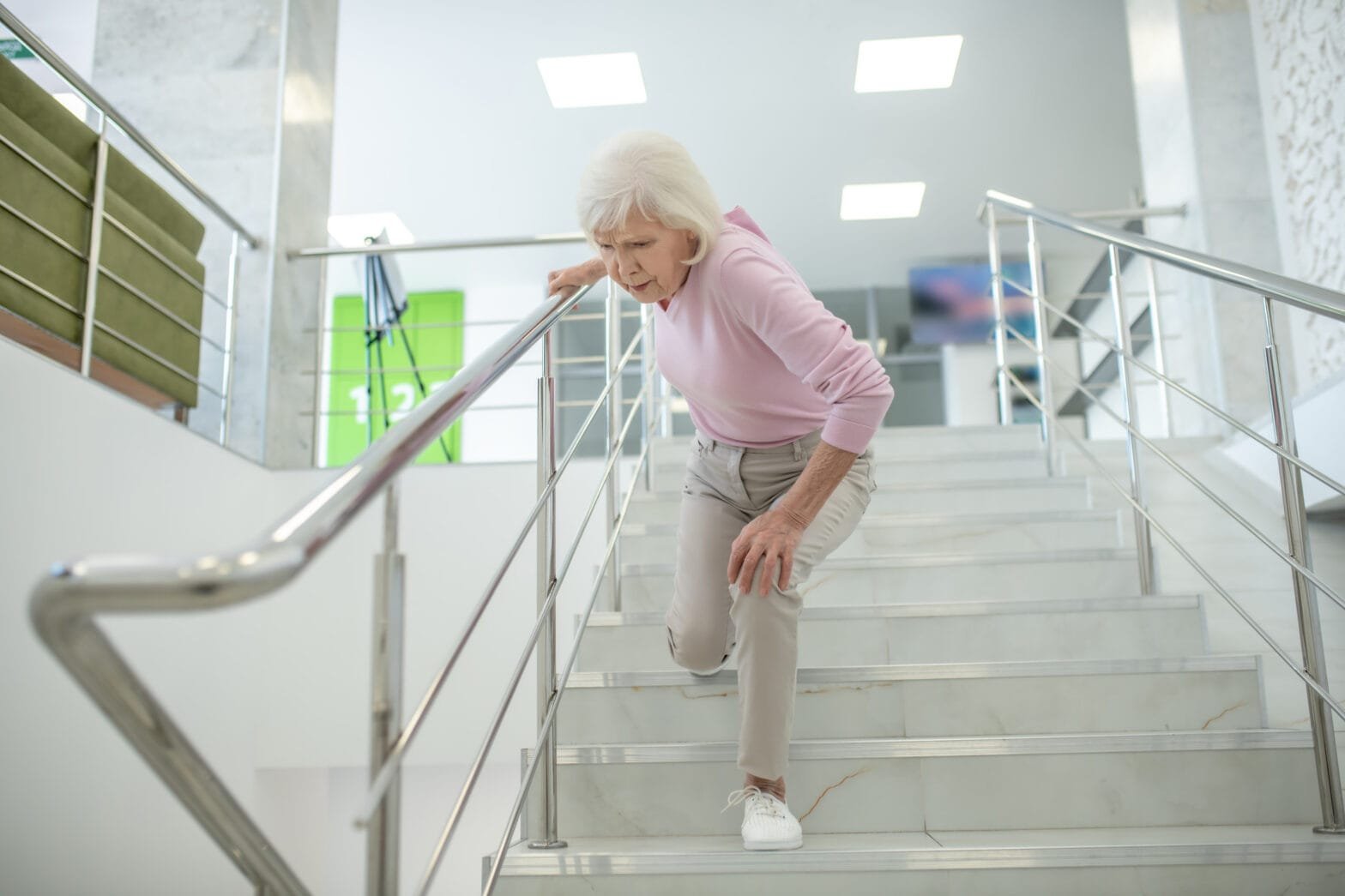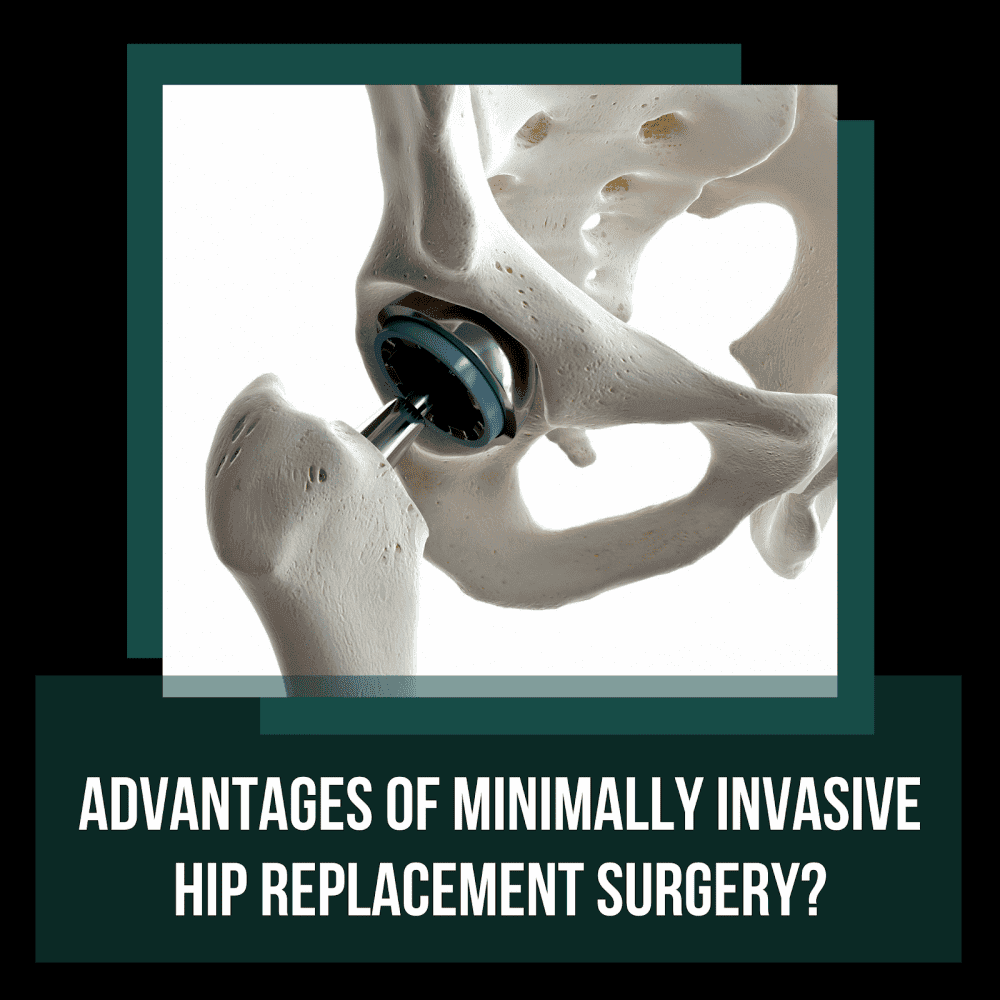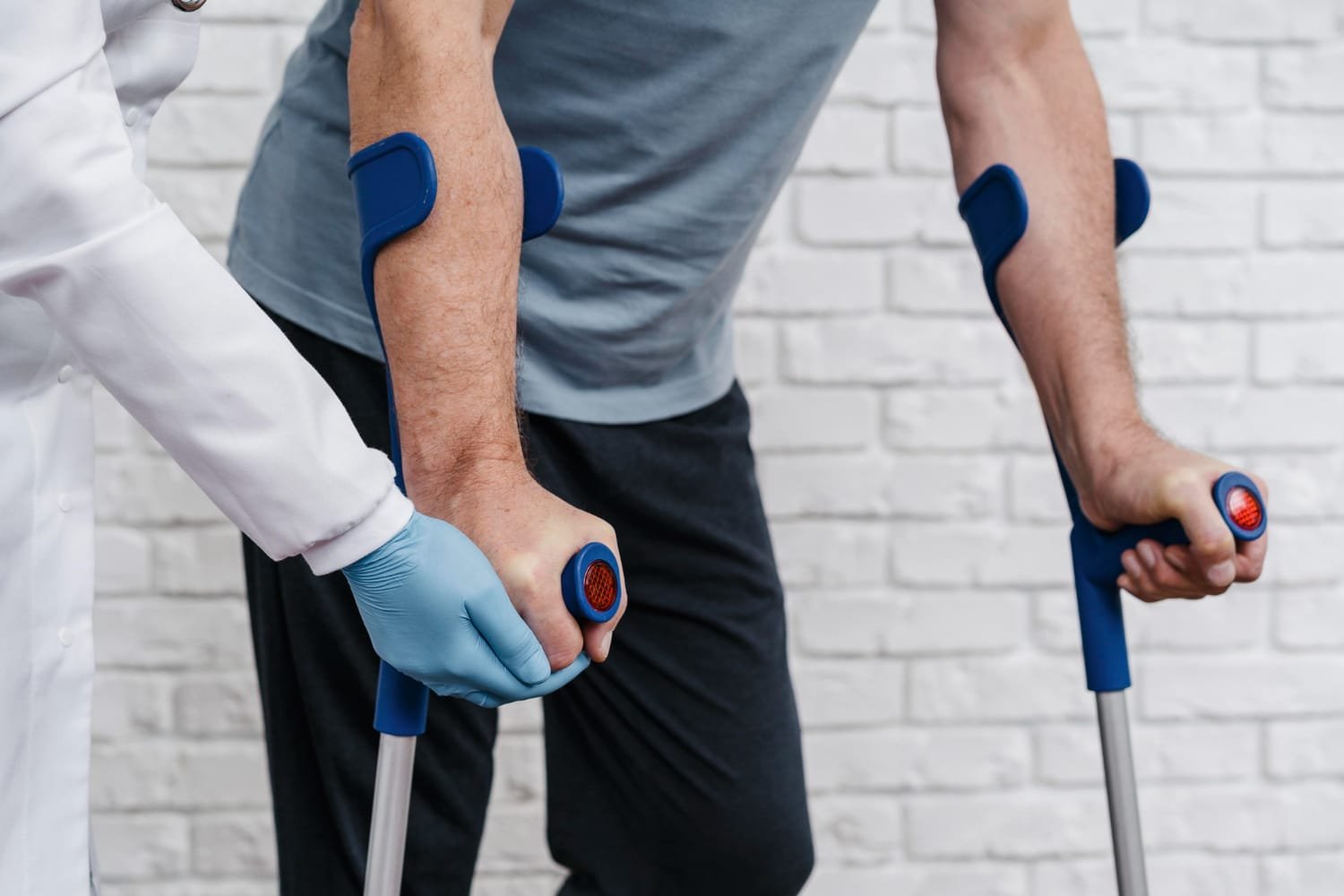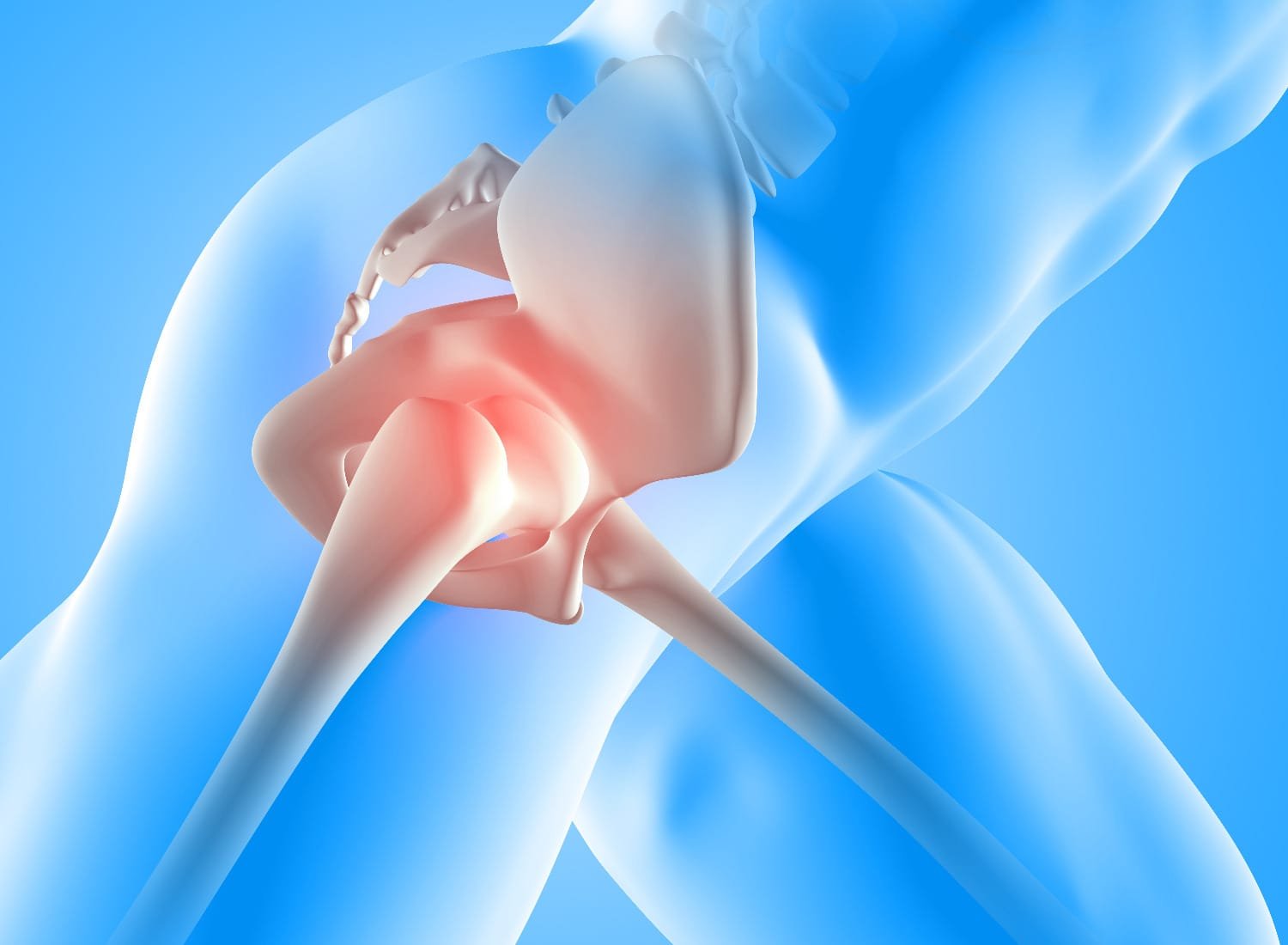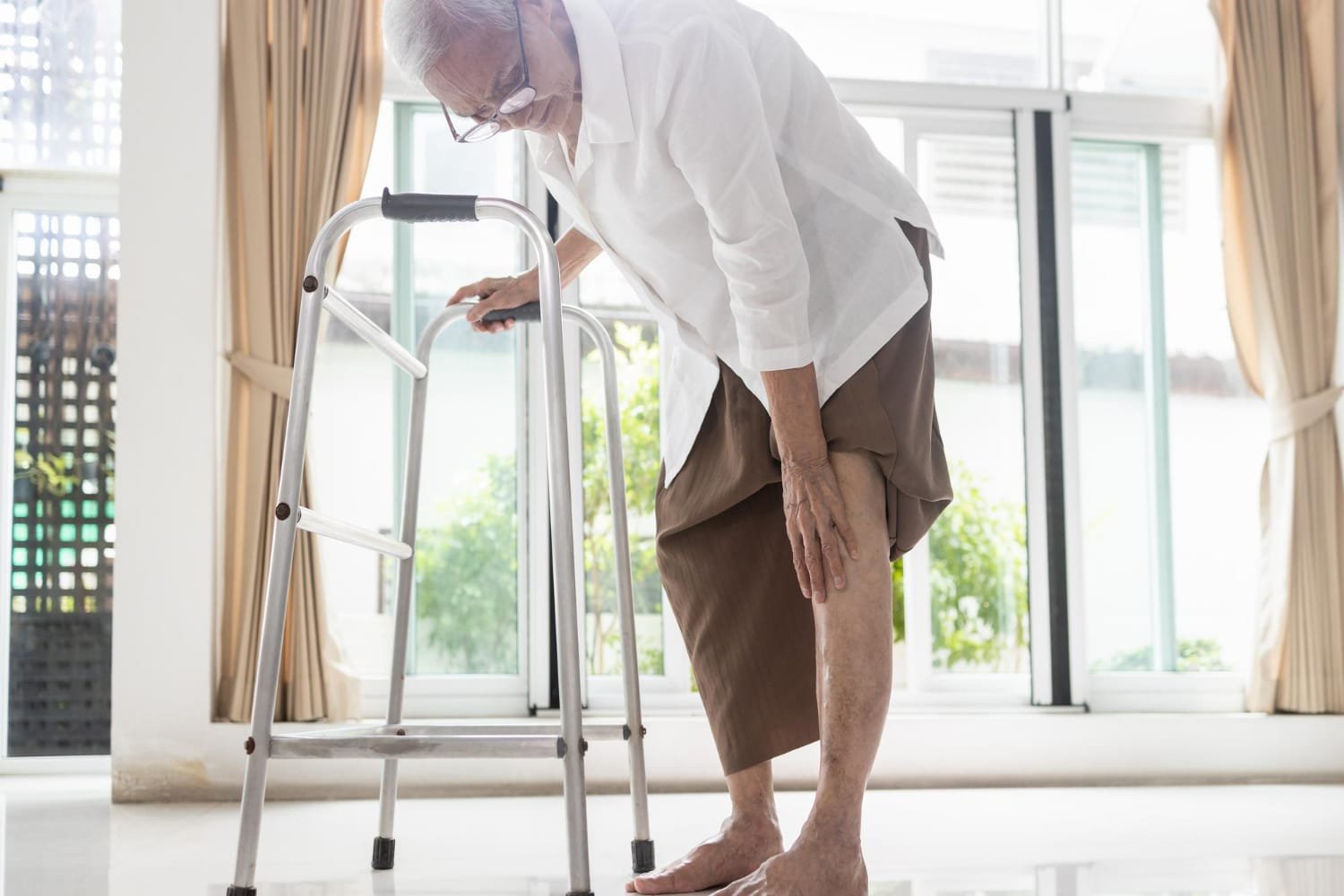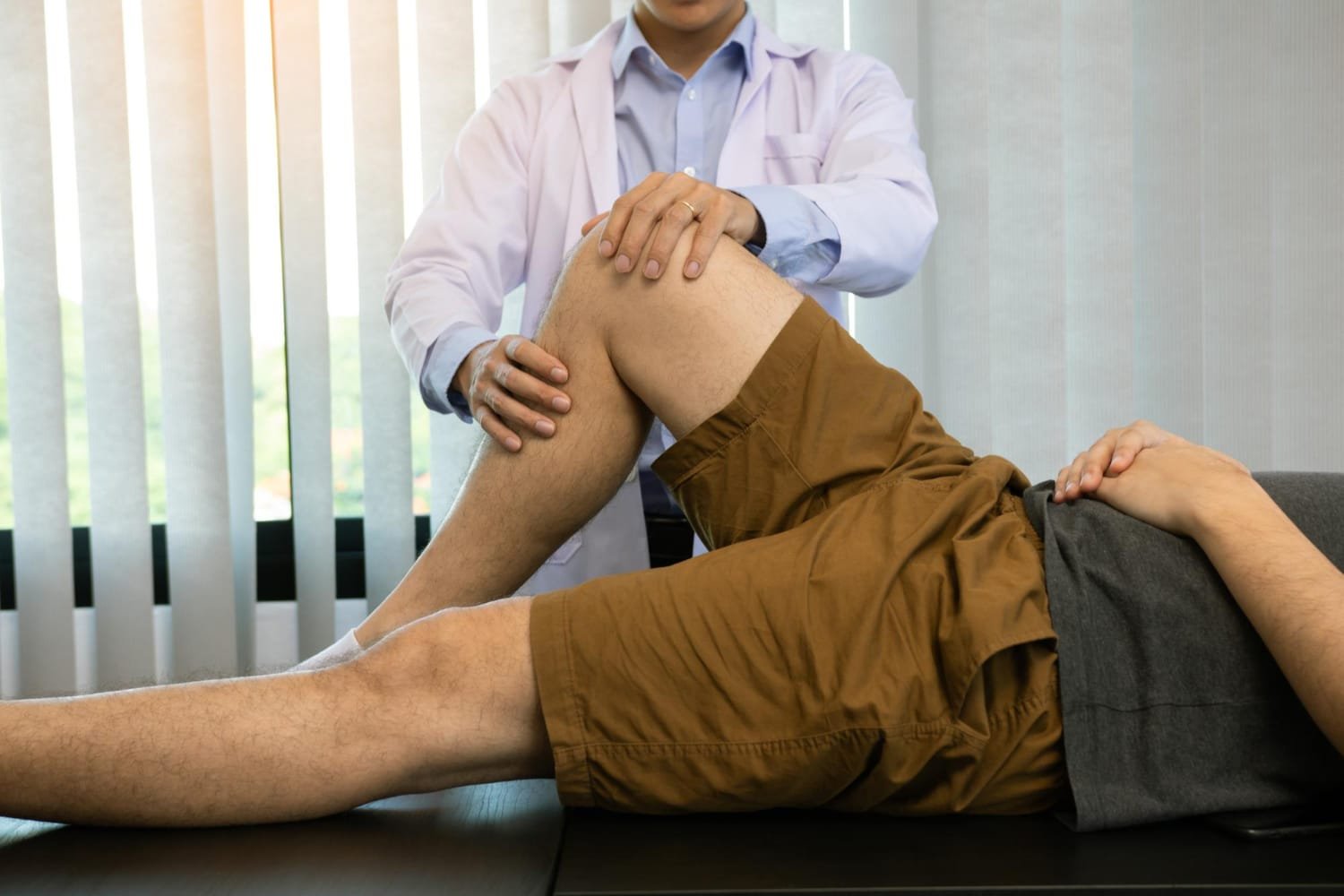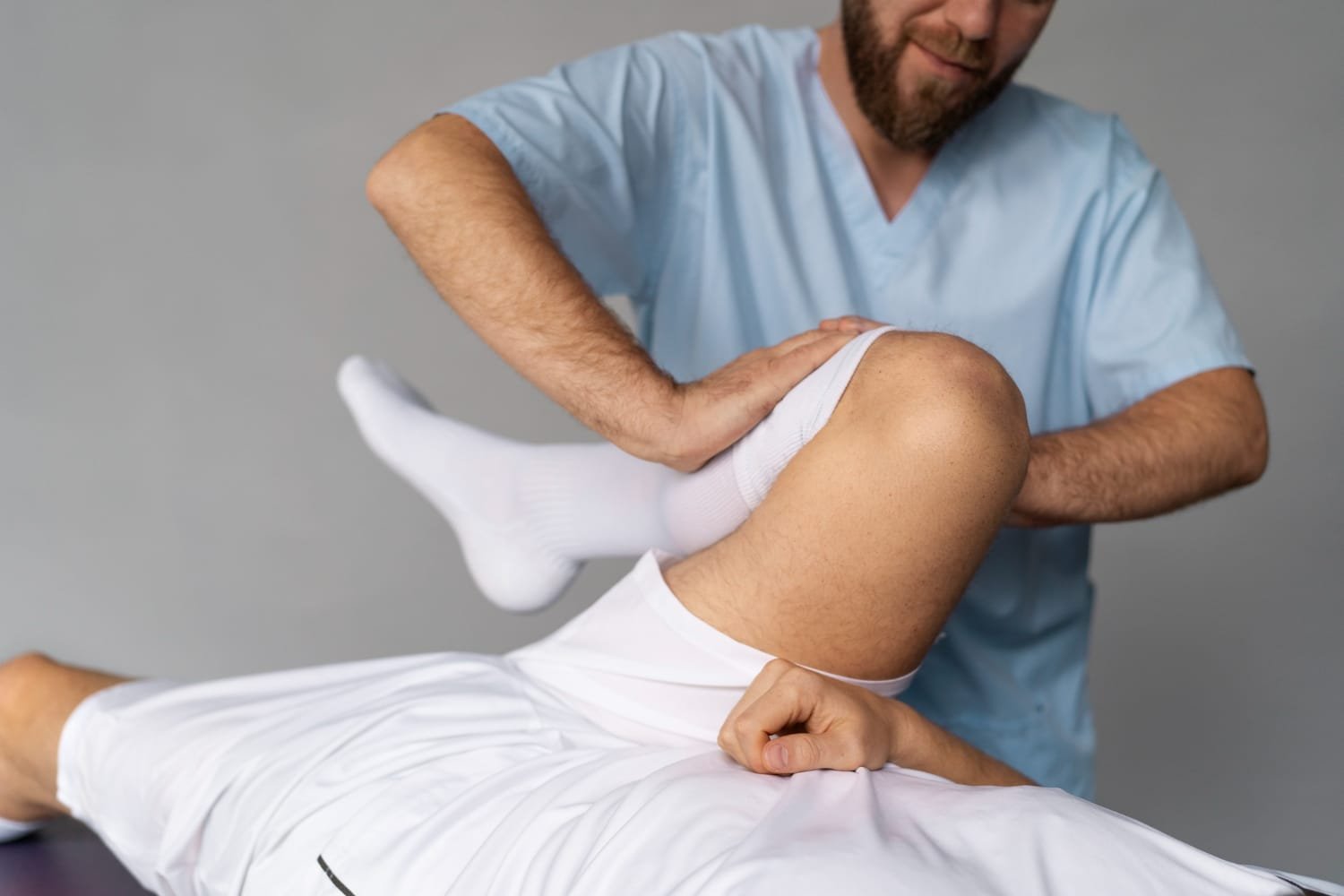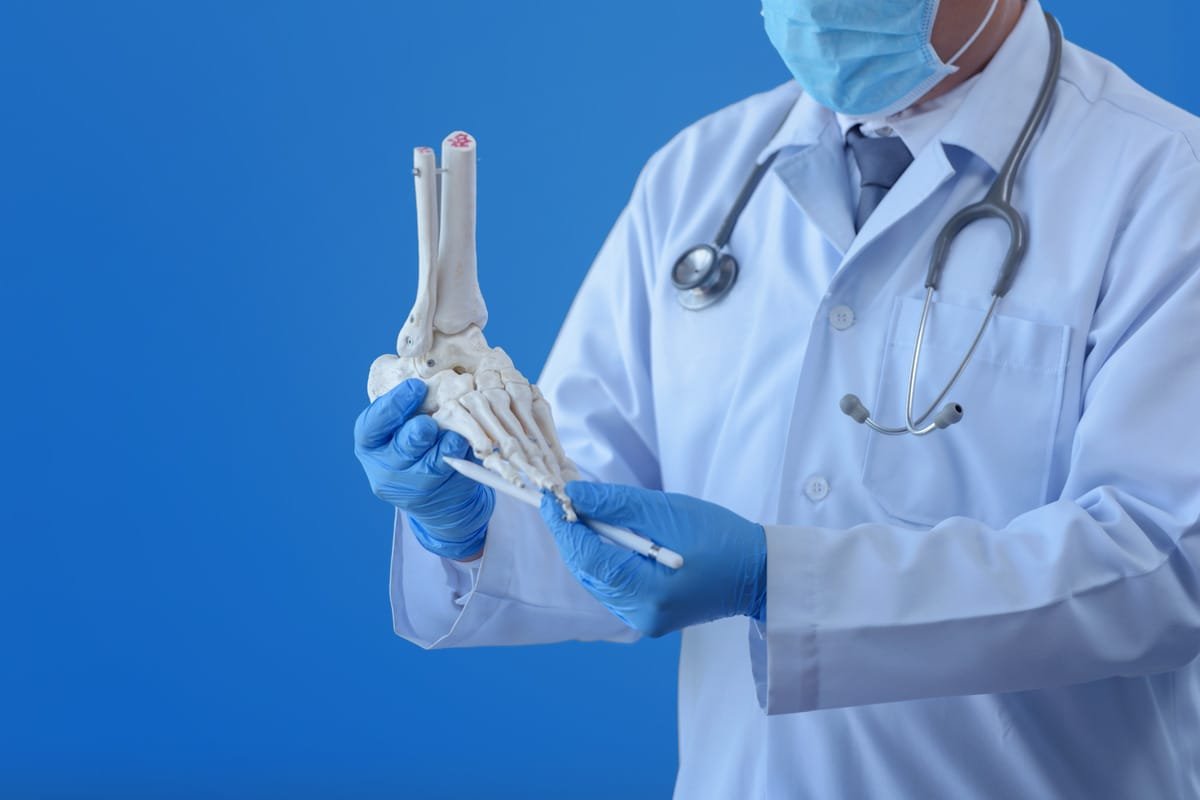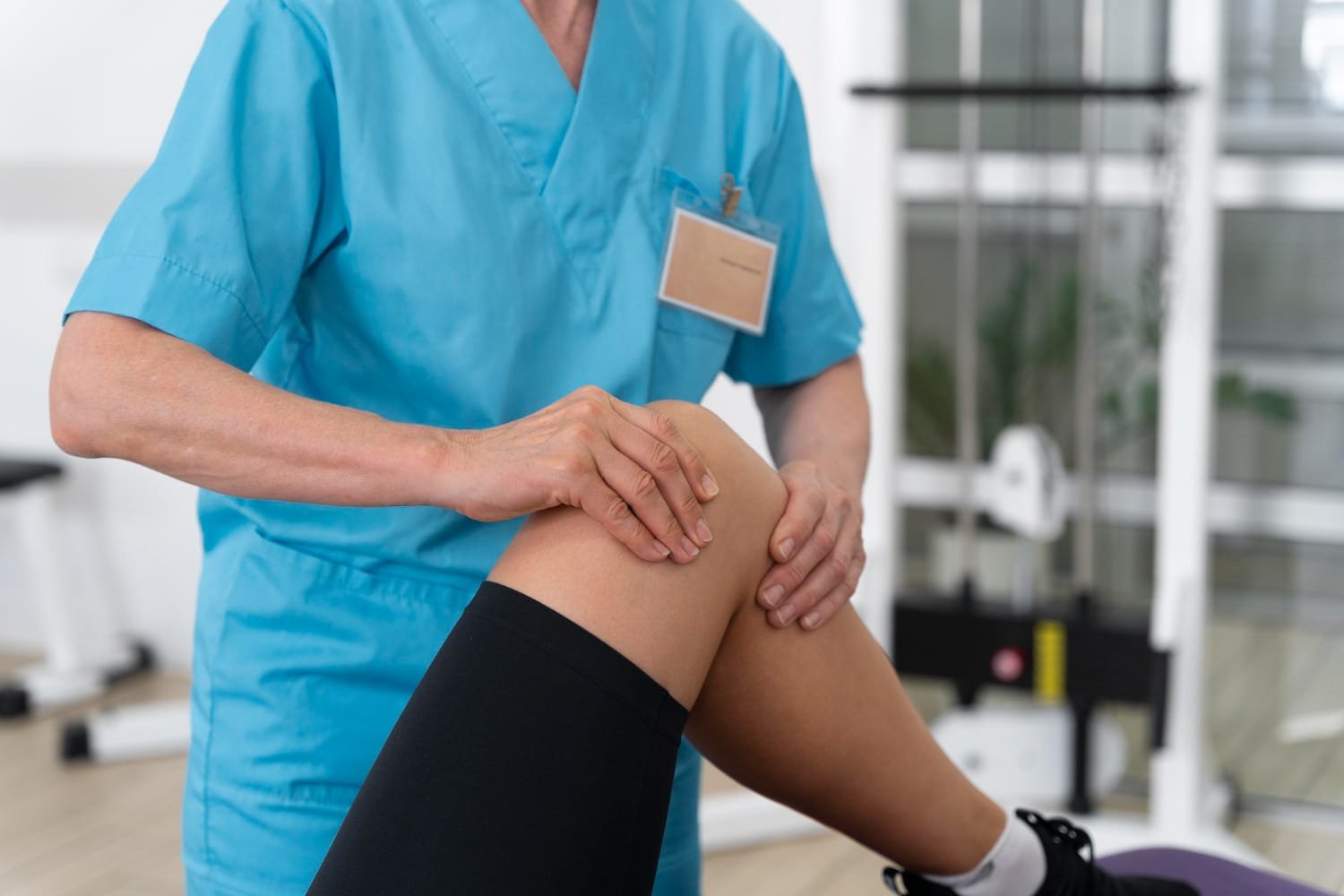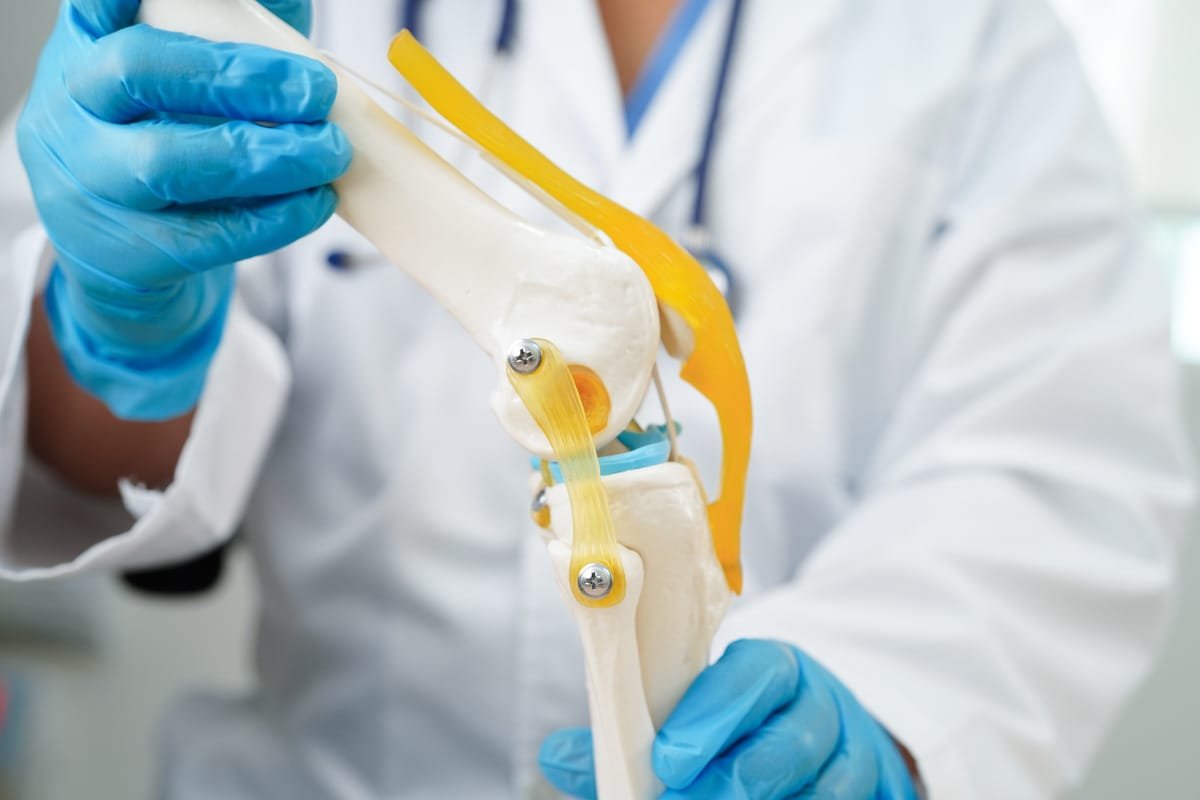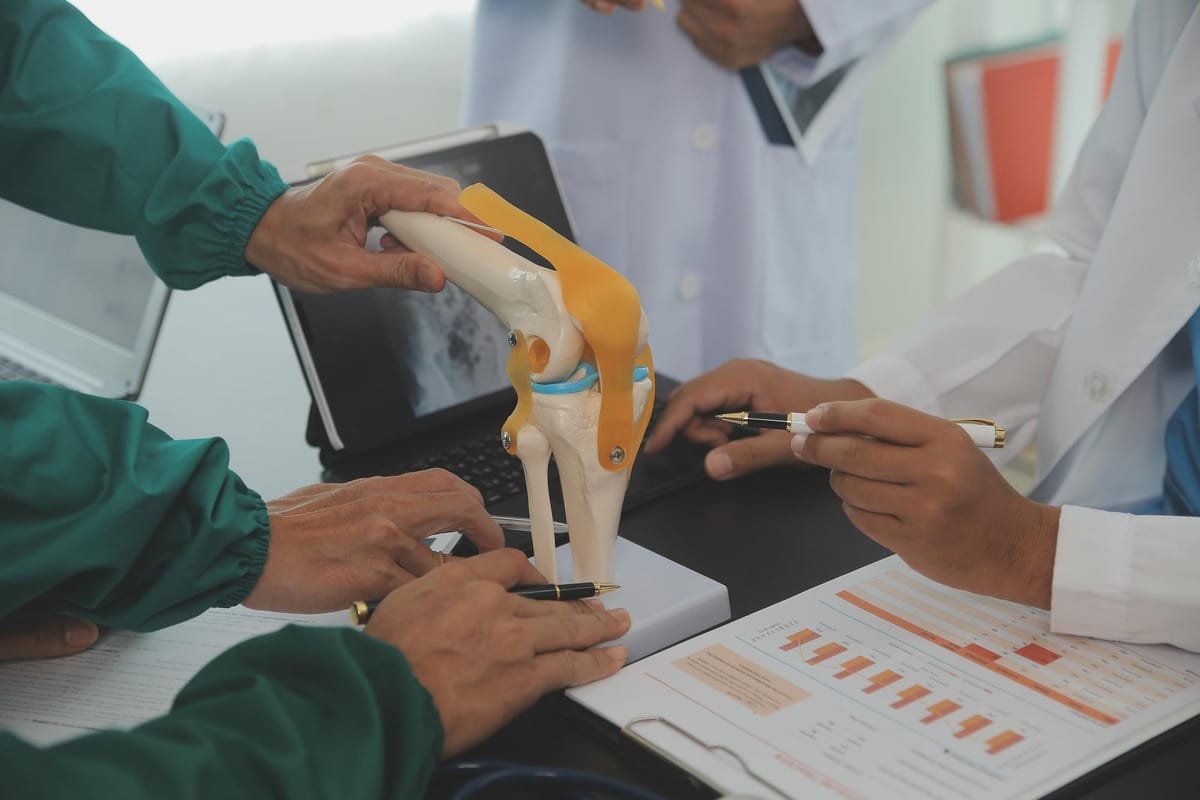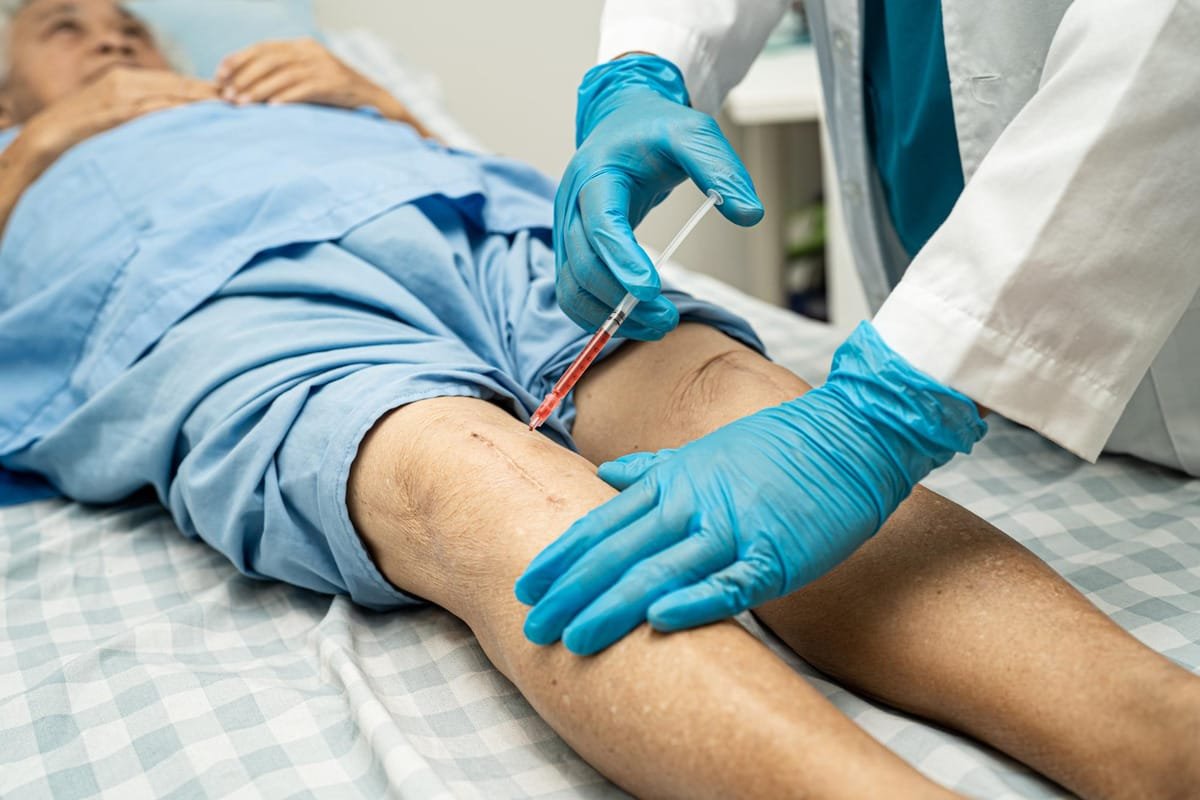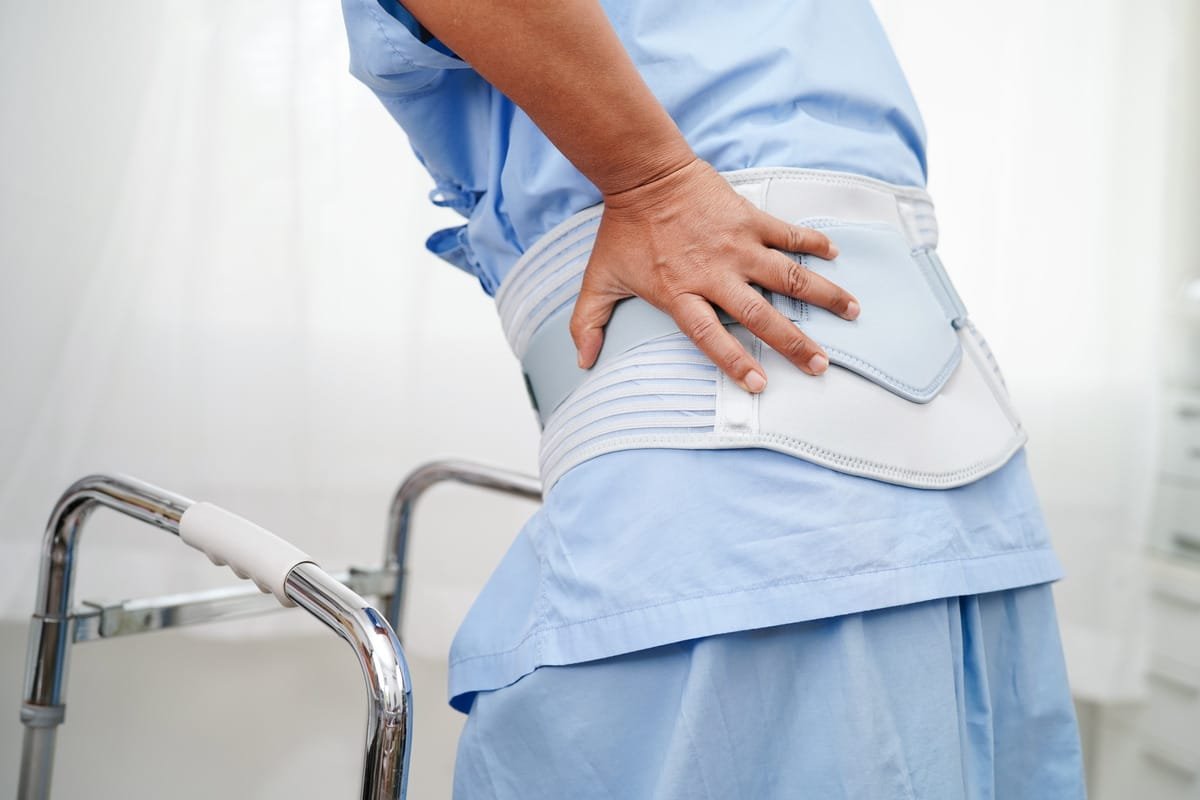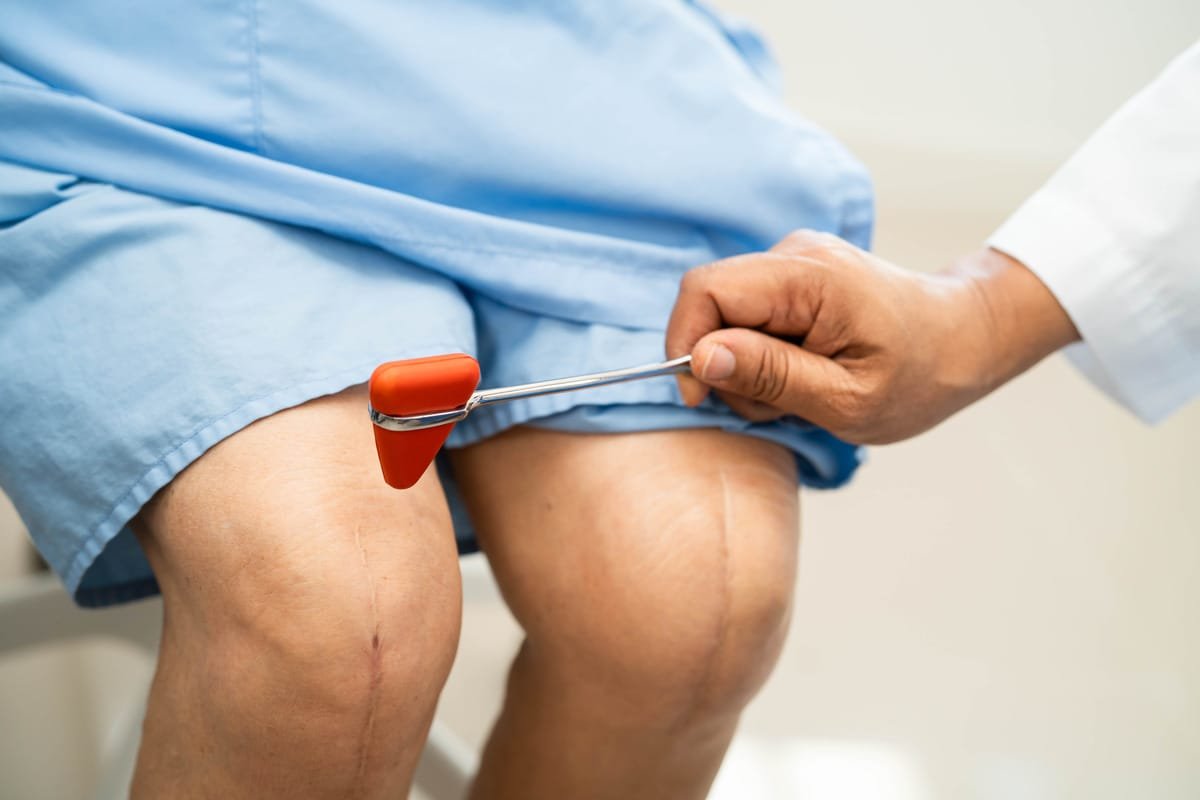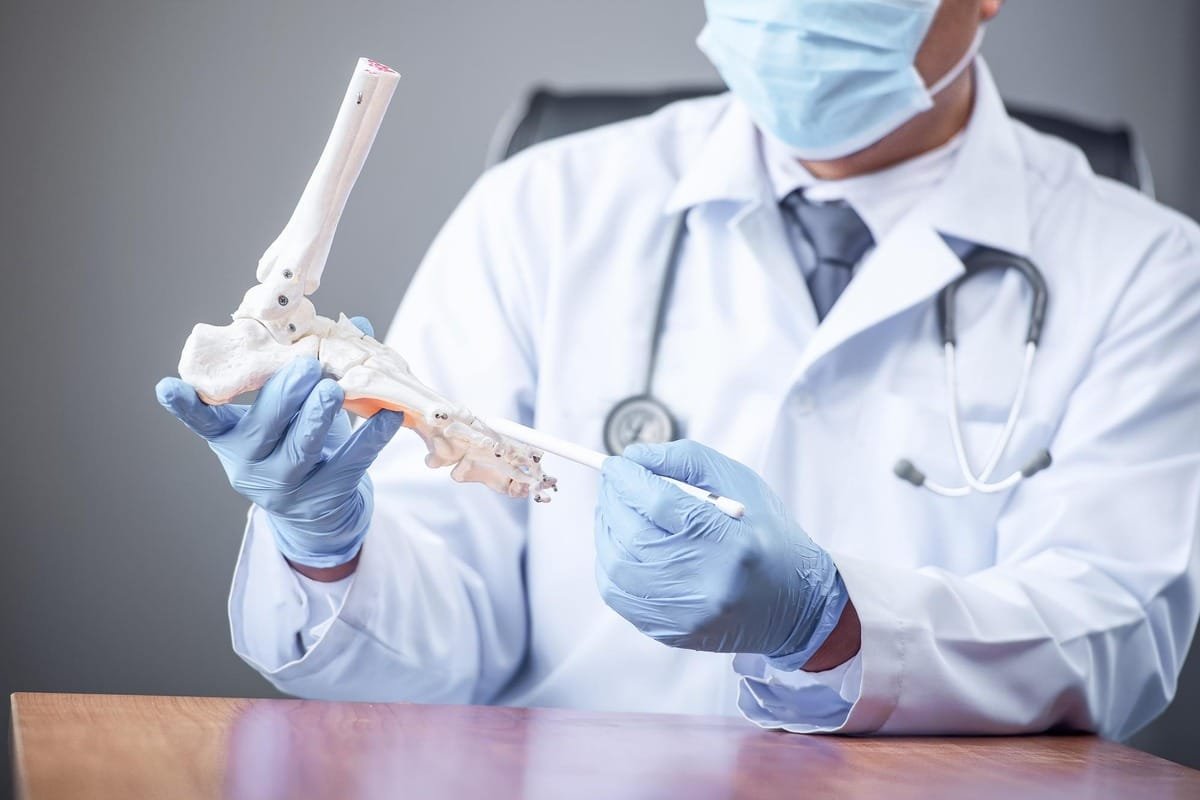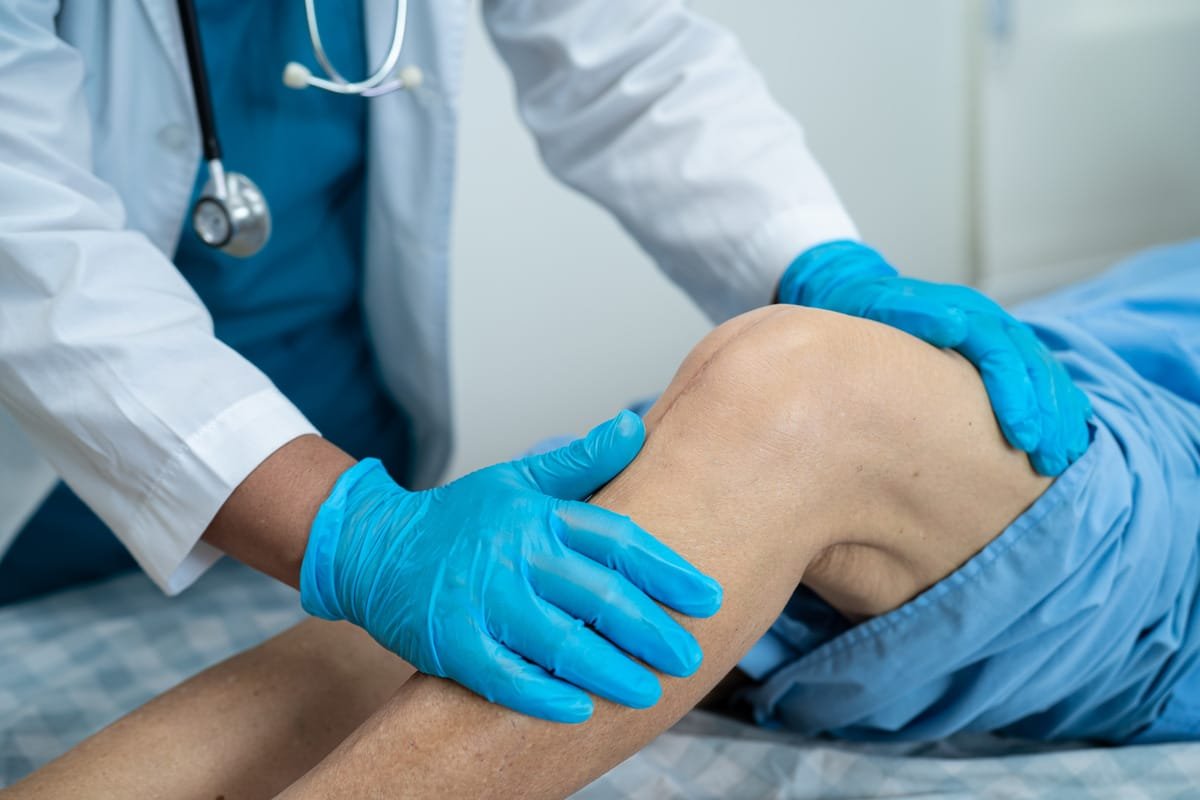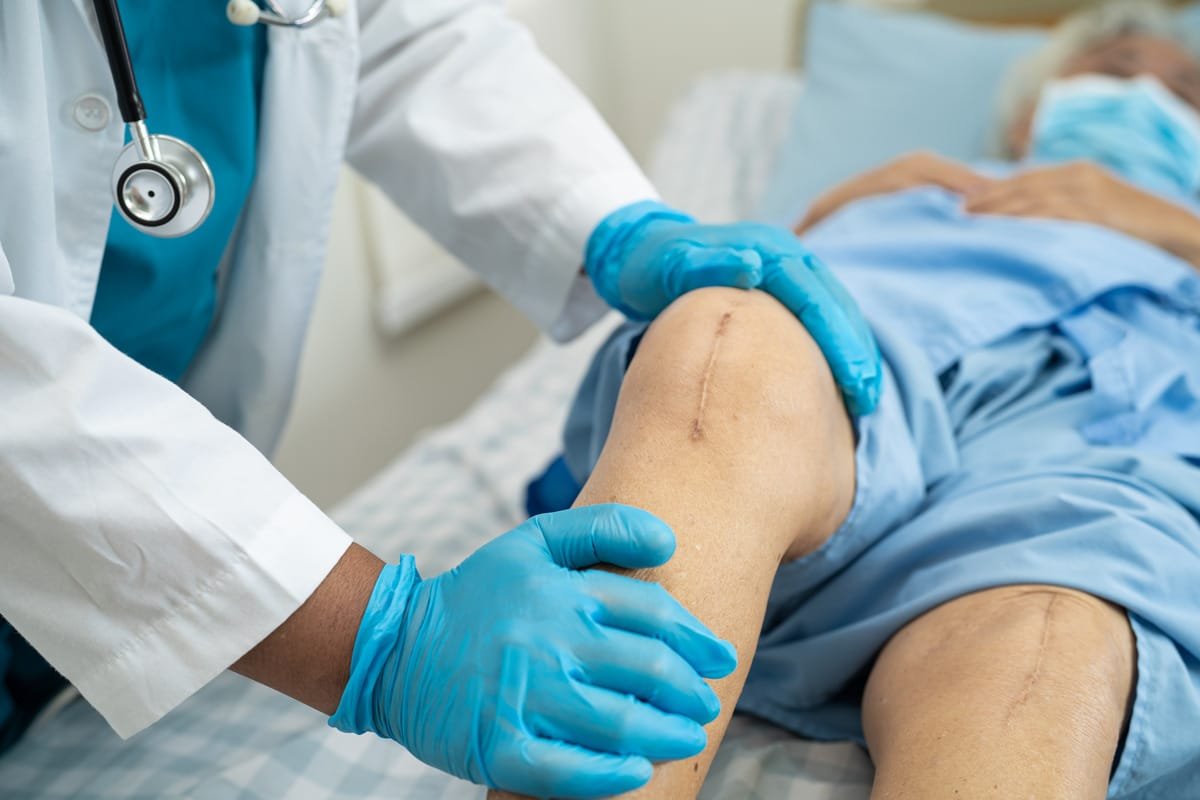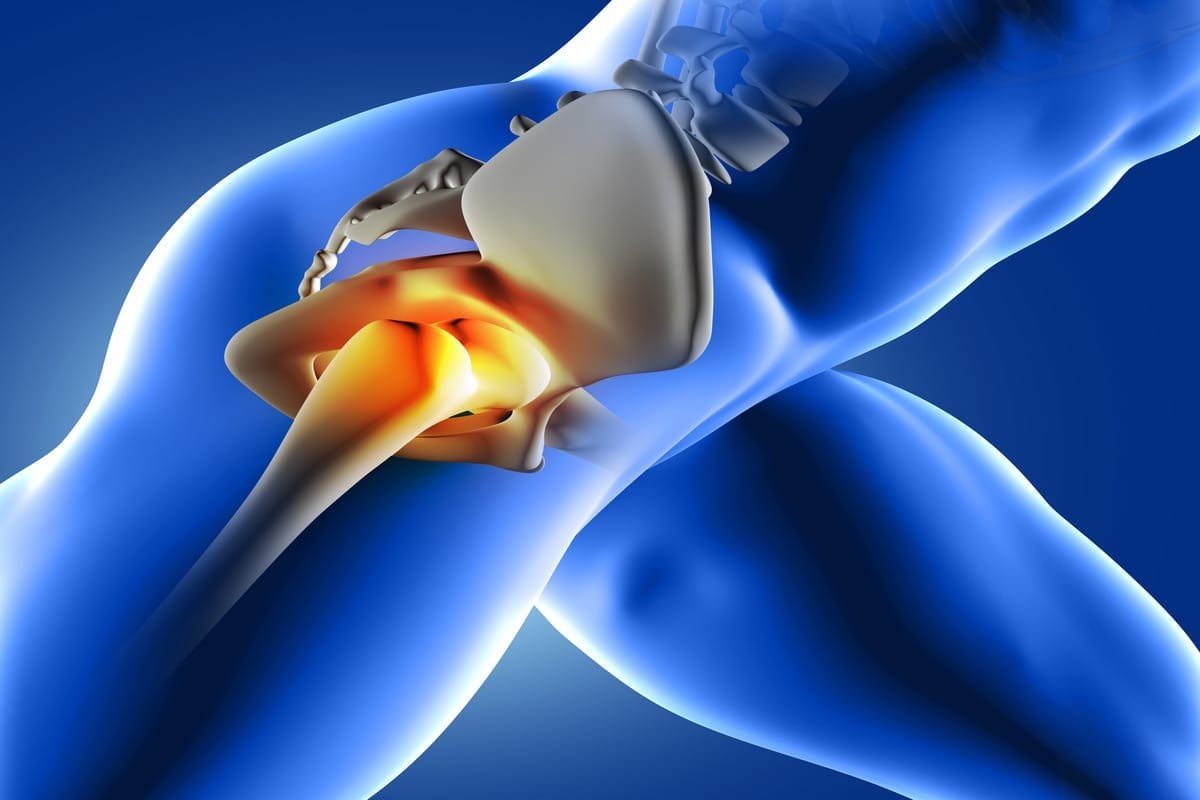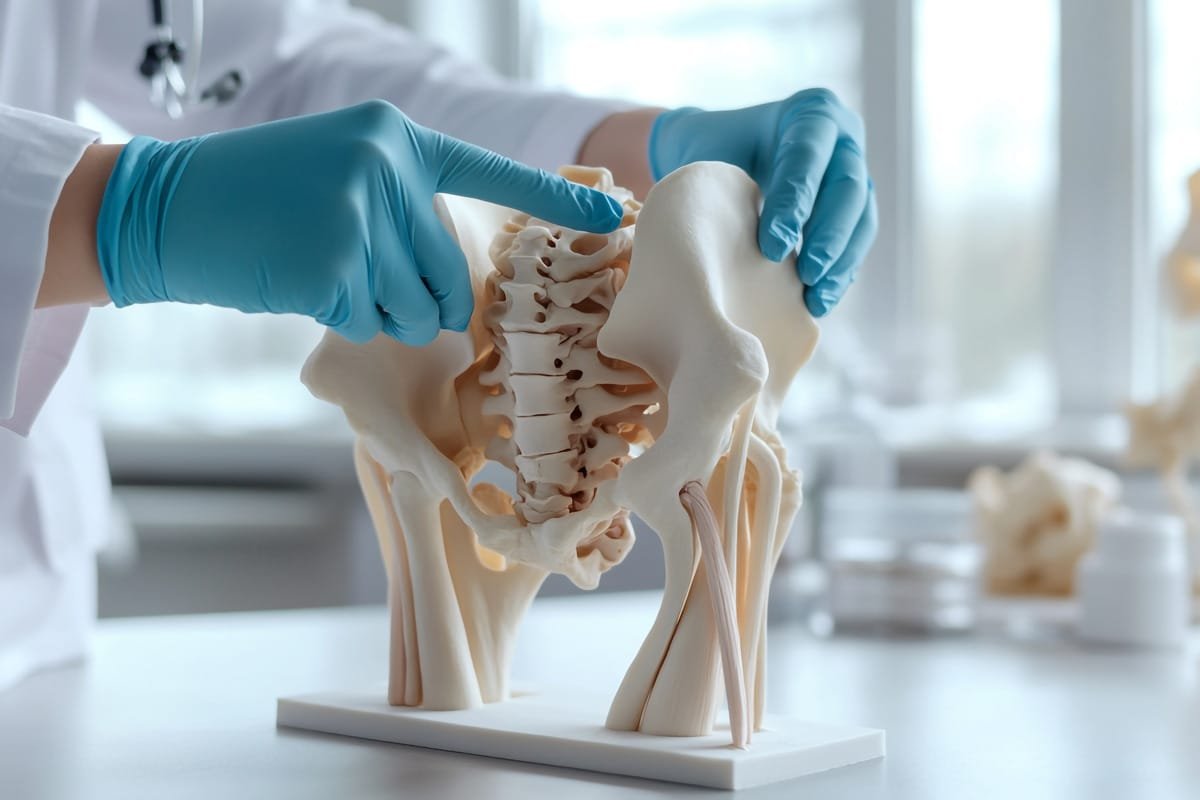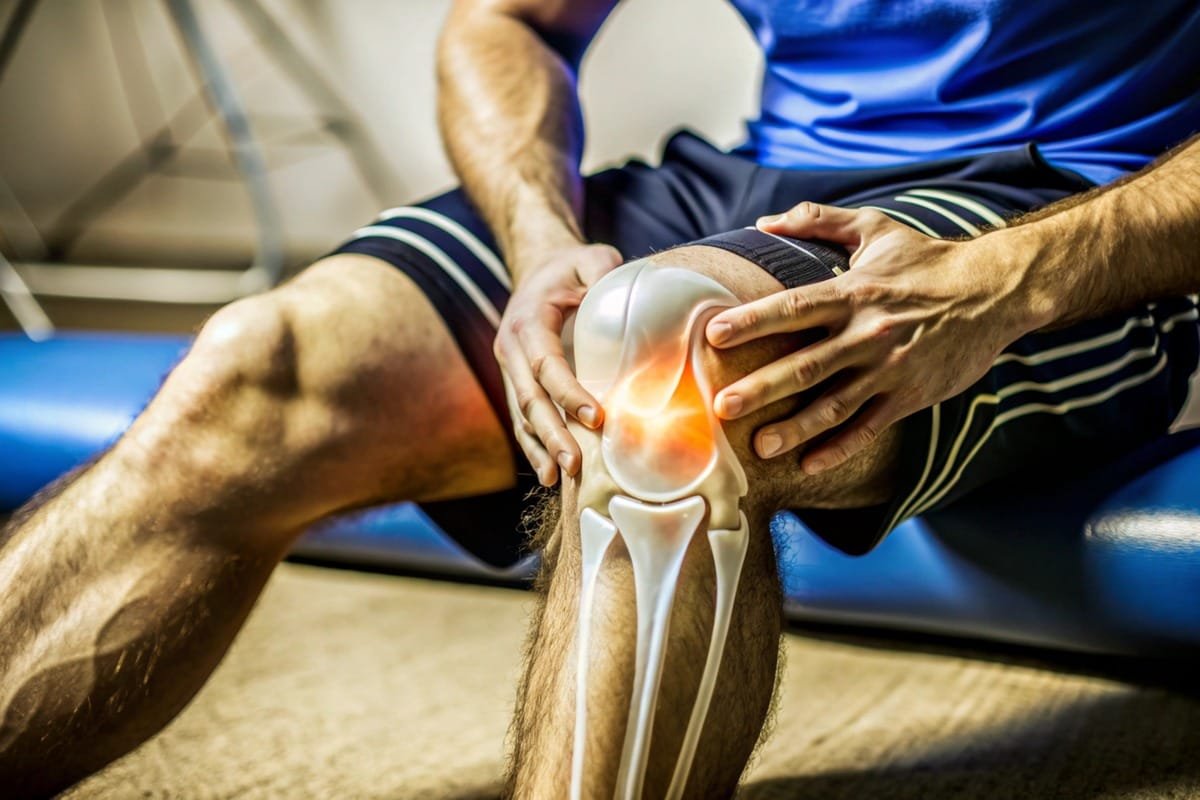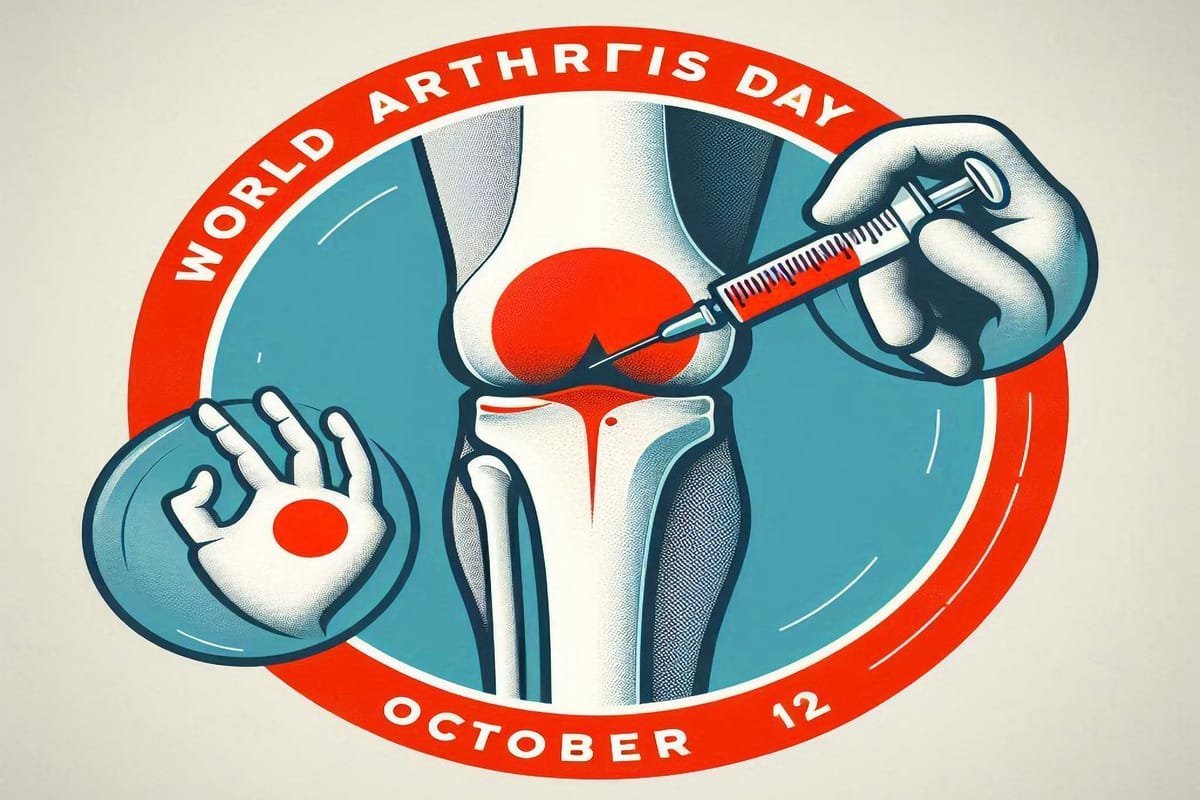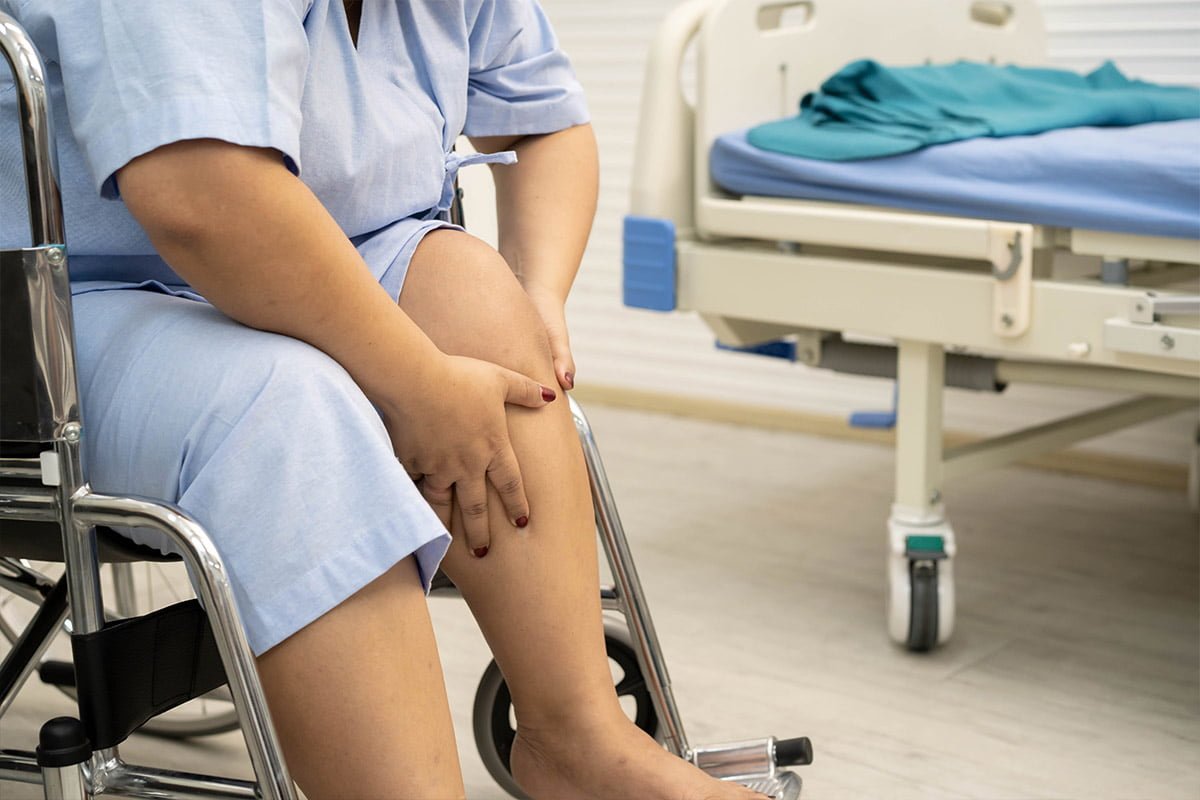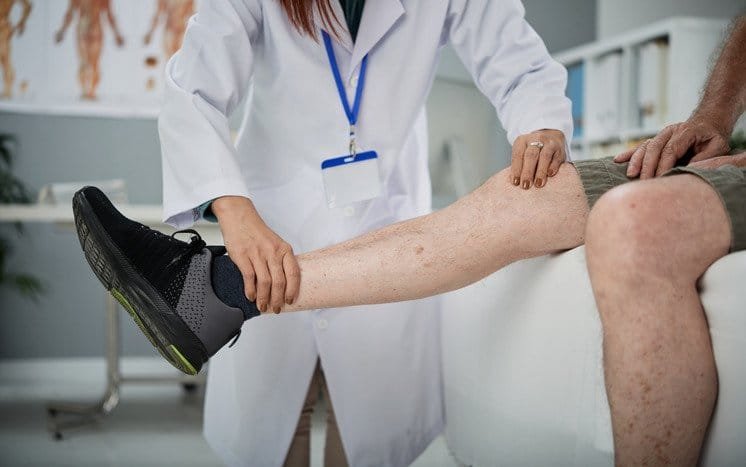
Revision Knee Replacement: Why Some Surgeries Need to Be Redone
June 16, 2025Featuring Dr. Deepak Mishra – Best Knee Replacement Surgeon in Faridabad
Introduction
Knee replacement surgeries have revolutionized orthopedic care, providing relief to countless individuals suffering from chronic joint pain and immobility. But what happens when a knee replacement fails to deliver the expected outcome? That’s where revision knee replacement comes in. Though not common, some knee replacement procedures need to be redone due to various complications, and this second surgery requires more expertise, precision, and care.
In Faridabad, Dr. Deepak Mishra is a leading name in advanced joint surgeries, including complex revision knee replacements. With vast experience and a patient-first approach, Dr. Mishra has helped hundreds regain mobility and confidence.
What Is a Revision Knee Replacement?
A revision knee replacement is a surgical procedure that involves replacing all or part of a previously implanted artificial knee joint. Unlike a primary knee replacement, which is done for arthritis or injury, revision surgery addresses issues like implant failure, loosening, infection, or wear and tear over time.
It is a more complicated surgery that demands expert orthopedic skills, advanced planning, and specialized implants.
Why Some Knee Replacements Need to Be Redone
Despite advancements in surgical techniques and implant technology, a small percentage of patients require revision for various reasons. Let’s explore them in detail:
1. Implant Wear and Loosening
Over time, even high-quality prosthetic joints can wear out. Daily movement causes gradual deterioration, especially in active or overweight individuals. Loosening can lead to pain, swelling, and decreased function.
2. Infection
Infection is a serious and unfortunate complication. It can develop shortly after surgery or even years later. Infected prosthetics require removal and thorough cleaning, followed by revision surgery once the infection clears.
3. Instability
If the joint feels unstable or “gives way,” it may be due to ligament damage, implant misalignment, or incorrect sizing. This instability can lead to discomfort and limited motion, necessitating revision.
4. Stiffness or Reduced Mobility
Scar tissue or improper positioning may cause stiffness, restricting movement. In some cases, physical therapy alone isn’t enough, and revision surgery becomes the only option for restoring joint function.
5. Fractures Around the Implant
Trauma or falls can cause fractures near or around the knee prosthesis. Depending on the severity, revision surgery may be required to stabilize the joint and replace the implant.
6. Allergic Reaction or Metallosis
Rarely, patients may experience a reaction to metal components in the implant. This can lead to pain, swelling, and soft tissue damage, making revision surgery necessary.
What to Expect During a Revision Surgery
Revision surgeries are more complex than the original knee replacement and typically involve:
- Preoperative Tests: X-rays, MRIs, blood tests, and joint fluid analysis to determine the cause of failure.
- Implant Removal: Careful extraction of the original prosthesis, which may be adhered to bone or surrounded by scar tissue.
- Bone Reconstruction: If bone loss has occurred, grafts or custom implants may be used.
- New Implant Placement: A specialized prosthesis is inserted to provide better stability and function.
- Longer Recovery: Rehabilitation is more intensive and tailored to the individual’s needs.
Key Differences from Primary Knee Replacement
| Factor | Primary Knee Replacement | Revision Knee Replacement |
|---|---|---|
| Complexity | Standard | High |
| Duration of Surgery | Shorter | Longer |
| Implant Requirements | Standard size | Customized or reinforced |
| Risk of Complications | Low | Higher |
| Recovery Time | Moderate | Longer and gradual |
Meet Dr. Deepak Mishra – Faridabad’s Expert in Revision Knee Replacement
When it comes to knee revision surgeries in Faridabad, Dr. Deepak Mishra is a trusted name in orthopedics. With over 26 years of surgical experience, he has successfully performed hundreds of complex joint procedures. His approach is holistic, combining clinical precision, advanced surgical tools, and post-operative rehabilitation guidance.
Why patients trust Dr. Deepak Mishra:
- Expertise in revision surgeries involving infections, bone loss, and implant loosening.
- Comprehensive pre-surgery diagnostics to ensure accurate treatment.
- Patient-centered care with minimal complications and high success rates.
- Known for performing robotic and computer-assisted joint replacements.
Patients from across Delhi NCR and beyond consult Dr. Mishra for second opinions and revision procedures that require a highly experienced hand.
When Should You Consider Revision Knee Replacement?
You should consult an orthopedic surgeon if you experience:
- Persistent or worsening knee pain
- Instability or “buckling” of the knee
- Limited range of motion despite physiotherapy
- Signs of infection (fever, swelling, redness)
- Audible sounds or discomfort when walking
Early diagnosis and intervention can prevent complications from becoming severe and increase the likelihood of a successful revision.
Conclusion
Revision knee replacement is a demanding yet life-changing procedure for patients whose primary knee replacements have not functioned as expected. With the right surgeon and approach, patients can regain mobility, reduce pain, and improve their quality of life.
In Faridabad, Dr. Deepak Mishra remains a leading authority in revision knee replacement surgery. His blend of surgical precision, patient dedication, and experience makes him the preferred choice for anyone facing knee joint issues—even after prior surgery.
Recent Blogs
-
 Post Operative Exercises
Post Operative Exercises- 1, March 2026
-
 After ACL Surgery When Can I Walk?
After ACL Surgery When Can I Walk?- 1, March 2026
-
 What Happens If Knee Arthritis Is Left Untreated?
What Happens If Knee Arthritis Is Left Untreated?- 21, February 2026
-
 Can Knee Replacement Fail? Causes, Signs & Prevention
Can Knee Replacement Fail? Causes, Signs & Prevention- 21, February 2026
-
 Who Is Not Suitable for Knee Replacement Surgery?
Who Is Not Suitable for Knee Replacement Surgery?- 12, February 2026
-
 Best Meniscus Injury Surgeon in Faridabad
Best Meniscus Injury Surgeon in Faridabad- 9, February 2026
-
 How Obesity Affects Knee Health & When to Consider Knee Replacement
How Obesity Affects Knee Health & When to Consider Knee Replacement- 6, February 2026
-
 Knee Pain After Sitting for Long Hours – What to Do
Knee Pain After Sitting for Long Hours – What to Do- 3, February 2026
-
 Most Common Sports Injuries and How to Prevent Them
Most Common Sports Injuries and How to Prevent Them- 26, January 2026
-
 Walking, Stairs & Daily Activities After Knee Replacement
Walking, Stairs & Daily Activities After Knee Replacement- 22, January 2026
-
 When Knee Pain Needs Medical Attention: Red Flags to Watch
When Knee Pain Needs Medical Attention: Red Flags to Watch- 19, January 2026
-
 Cartilage Damage in Sports: Early Signs Athletes Should Not Ignore
Cartilage Damage in Sports: Early Signs Athletes Should Not Ignore- 15, January 2026
-
 Can You Sit Cross-Legged After Knee Replacement?
Can You Sit Cross-Legged After Knee Replacement?- 13, January 2026
-
 Types of Knee Implants
Types of Knee Implants- 13, January 2026
-
 Special Tests for Knee Osteoarthritis
Special Tests for Knee Osteoarthritis- 7, January 2026
-
 Knee Operation Types: A Comprehensive Guide
Knee Operation Types: A Comprehensive Guide- 7, January 2026
-
 Difference Between Knee Arthritis, Meniscus Tear, and Ligament Injury
Difference Between Knee Arthritis, Meniscus Tear, and Ligament Injury- 30, December 2025
-
 Knee Pain While Walking: When Should You Worry?
Knee Pain While Walking: When Should You Worry?- 30, December 2025
-
 What Happens If Knee Replacement Is Delayed Too Long?
What Happens If Knee Replacement Is Delayed Too Long?- 24, December 2025
-
 How Cartilage Loss Leads to Chronic Knee Pain
How Cartilage Loss Leads to Chronic Knee Pain- 24, December 2025
-
 ACL Tears in Athletes: Symptoms, Treatment Options & Recovery
ACL Tears in Athletes: Symptoms, Treatment Options & Recovery- 19, November 2025
-
 Sports Injuries That Often Lead to Knee Replacement
Sports Injuries That Often Lead to Knee Replacement- 19, November 2025
-
 Orthopedic Care for Elderly Patients — A Complete Guide
Orthopedic Care for Elderly Patients — A Complete Guide- 12, November 2025
-
 How Long Do Knee Implants Last? (10–20 Year Longevity Guide)
How Long Do Knee Implants Last? (10–20 Year Longevity Guide)- 12, November 2025
-
 Importance of Early Diagnosis in Bone and Joint Problems
Importance of Early Diagnosis in Bone and Joint Problems- 28, October 2025
-
 Best Treatment Options for Sports Injuries
Best Treatment Options for Sports Injuries- 28, October 2025
-
 The Difference Between ACL Tear, Sprain, and Rupture
The Difference Between ACL Tear, Sprain, and Rupture- 16, October 2025
-
 Post-ACL Surgery Do’s and Don’ts
Post-ACL Surgery Do’s and Don’ts- 16, October 2025
-
 Early Signs You Might Have an ACL Injury (and When to See a Doctor)
Early Signs You Might Have an ACL Injury (and When to See a Doctor)- 16, October 2025
-
 Does Insurance Cover Robotic Knee Replacement Surgery?
Does Insurance Cover Robotic Knee Replacement Surgery?- 6, October 2025
-
 When Can You Return to Sports After Robotic Knee Replacement?
When Can You Return to Sports After Robotic Knee Replacement?- 6, October 2025
-
 Impact of Obesity on Knee Replacement Surgery and Recovery
Impact of Obesity on Knee Replacement Surgery and Recovery- 30, September 2025
-
 Early vs. Delayed Knee Replacement: Which Is Better?
Early vs. Delayed Knee Replacement: Which Is Better?- 30, September 2025
-
 How Durable Are Knee Implants? A Complete Guide
How Durable Are Knee Implants? A Complete Guide- 24, September 2025
-
 Can You Play Sports After Knee Replacement Surgery?
Can You Play Sports After Knee Replacement Surgery?- 24, September 2025
-
 Key Benefits of Revision Hip Replacement You Should Know
Key Benefits of Revision Hip Replacement You Should Know- 15, September 2025
-
 Revision Hip Replacement vs. Primary Hip Replacement: Key Differences
Revision Hip Replacement vs. Primary Hip Replacement: Key Differences- 15, September 2025
-

-
 Total Knee Replacement Complications: What You Need to Know
Total Knee Replacement Complications: What You Need to Know- 5, September 2025
-
 Can You Play Sports After Hip Replacement Surgery?
Can You Play Sports After Hip Replacement Surgery?- 26, August 2025
-
 Preparing for Knee Replacement: Do’s and Don’ts Before Surgery
Preparing for Knee Replacement: Do’s and Don’ts Before Surgery- 26, August 2025
-

-
 What to Know About Knee Replacement Revision Surgery
What to Know About Knee Replacement Revision Surgery- 18, August 2025
-
 Cost of Hip Replacement in India – What Patients Should Know
Cost of Hip Replacement in India – What Patients Should Know- 11, August 2025
-

-
 Who Is the Best Orthopedic Doctor for Sports Injuries?
Who Is the Best Orthopedic Doctor for Sports Injuries?- 27, July 2025
-
 Success Rate of Robotic Knee Replacement in India
Success Rate of Robotic Knee Replacement in India- 27, July 2025
-
 Why Surgeons Are Switching to Robotic Knee Replacements
Why Surgeons Are Switching to Robotic Knee Replacements- 15, July 2025
-
 Do’s and Don’ts After Knee Replacement Surgery
Do’s and Don’ts After Knee Replacement Surgery- 15, July 2025
-
 Best Robotic Knee Replacement in India
Best Robotic Knee Replacement in India- 7, July 2025
-
 Affordable Robotic Knee Replacement in India
Affordable Robotic Knee Replacement in India- 7, July 2025
-

-

-

-

-

-

-

-
 Orthopedic Meaning, Definition, Types, and More
Orthopedic Meaning, Definition, Types, and More- 6, June 2025
-
 What Are the Most Common Orthopedic Surgeries?
What Are the Most Common Orthopedic Surgeries?- 24, May 2025
-
 What Does an Orthopedic Doctor Do?
What Does an Orthopedic Doctor Do?- 24, May 2025
-

-

-

-
 Best Orthopedic Doctor for Knee Pain in Faridabad
Best Orthopedic Doctor for Knee Pain in Faridabad- 12, May 2025
-
 How to Prevent Knee Pain with Orthopedic Expert Tips
How to Prevent Knee Pain with Orthopedic Expert Tips- 29, April 2025
-

-
 Best Orthopedic Treatment in Faridabad: What You Should Know
Best Orthopedic Treatment in Faridabad: What You Should Know- 29, April 2025
-

-

-
 Best Knee Replacement Surgeon in Mathura
Best Knee Replacement Surgeon in Mathura- 14, April 2025
-
 Best Knee Replacement Surgeon in Hodal
Best Knee Replacement Surgeon in Hodal- 14, April 2025
-
 Best Knee Replacement Surgeon in Palwal
Best Knee Replacement Surgeon in Palwal- 14, April 2025
-

-

-

-
 Benefits of Minimally Invasive Knee Surgery
Benefits of Minimally Invasive Knee Surgery- 24, March 2025
-
 Best knee Replacement Surgeon in India
Best knee Replacement Surgeon in India- 17, March 2025
-

-
 How to Recover Quickly After Knee Replacement Surgery
How to Recover Quickly After Knee Replacement Surgery- 10, March 2025
-

-

-

-
 Minimally Invasive Arthroplasty: Benefits and Recovery Advantages
Minimally Invasive Arthroplasty: Benefits and Recovery Advantages- 24, February 2025
-
 Common Mistakes to Avoid After Joint Replacement Surgery
Common Mistakes to Avoid After Joint Replacement Surgery- 24, February 2025
-
 Choosing the Right Hip Replacement Surgeon: A Comprehensive Guide
Choosing the Right Hip Replacement Surgeon: A Comprehensive Guide- 17, February 2025
-
 Restoring Mobility: The Role of Knee Replacement Doctors
Restoring Mobility: The Role of Knee Replacement Doctors- 17, February 2025
-
 Orthopedic Trauma Care for Athletes
Orthopedic Trauma Care for Athletes- 6, February 2025
-
 Best Doctor for ACL Tear Treatment
Best Doctor for ACL Tear Treatment- 6, February 2025
-
 Best Sports Medicine Doctor for Knee Injuries
Best Sports Medicine Doctor for Knee Injuries- 6, February 2025
-
 Orthopedic Surgeons: 7 Things You Need to Know
Orthopedic Surgeons: 7 Things You Need to Know- 27, January 2025
-
 Best Joint Replacement Surgeon in Greater Faridabad
Best Joint Replacement Surgeon in Greater Faridabad- 27, January 2025
-
 Best Knee Replacement Surgeon in Palwal
Best Knee Replacement Surgeon in Palwal- 20, January 2025
-
 Best Knee Replacement Surgeon in South Delhi
Best Knee Replacement Surgeon in South Delhi- 20, January 2025
-
 Signs You May Need a Knee Replacement: Insights from a Surgeon
Signs You May Need a Knee Replacement: Insights from a Surgeon- 13, January 2025
-
 Restoring Mobility: The Role of Knee Replacement Doctor
Restoring Mobility: The Role of Knee Replacement Doctor- 13, January 2025
-
 Robotic Knee Replacement Surgery in Delhi
Robotic Knee Replacement Surgery in Delhi- 30, December 2024
-
 Robotic Orthopedic Surgery: Revolutionizing Joint Replacement and Repair
Robotic Orthopedic Surgery: Revolutionizing Joint Replacement and Repair- 30, December 2024
-
 Robotic Knee Replacement vs. Traditional Surgery: A Comparative Guide
Robotic Knee Replacement vs. Traditional Surgery: A Comparative Guide- 23, December 2024
-
 How to Make Joints Stronger: A Comprehensive Guide
How to Make Joints Stronger: A Comprehensive Guide- 23, December 2024
-
 Common Knee Conditions and How a Knee Surgeon Can Help
Common Knee Conditions and How a Knee Surgeon Can Help- 16, December 2024
-

-

-
 Orthopedic Surgeons: 7 Things You Need to Know
Orthopedic Surgeons: 7 Things You Need to Know- 6, December 2024
-
 Top 5 Mistakes After Knee Replacement
Top 5 Mistakes After Knee Replacement- 25, November 2024
-
 Advantages and Disadvantages of Robotic Knee Replacement
Advantages and Disadvantages of Robotic Knee Replacement- 25, November 2024
-
 When to See an Orthopedic Specialist: Recognizing Early Signs
When to See an Orthopedic Specialist: Recognizing Early Signs- 15, November 2024
-
 Benefits of Robotic-Assisted Knee Replacement Surgery
Benefits of Robotic-Assisted Knee Replacement Surgery- 15, November 2024
-
 Knee Replacement Surgery Cost
Knee Replacement Surgery Cost- 8, November 2024
-
 Best Robotic Knee Replacement Surgeon in Faridabad
Best Robotic Knee Replacement Surgeon in Faridabad- 8, November 2024
-

-
 Knee Replacement Surgery: Types, Benefits, and Recovery Timeline
Knee Replacement Surgery: Types, Benefits, and Recovery Timeline- 28, October 2024
-
 What is Osteoporosis? Symptoms, Causes, and Prevention
What is Osteoporosis? Symptoms, Causes, and Prevention- 21, October 2024
-
 Signs It’s Time for a Knee Replacement: When to Consult a Surgeon
Signs It’s Time for a Knee Replacement: When to Consult a Surgeon- 18, October 2024
-
 Understanding Different Types of Arthritis: Symptoms and Causes
Understanding Different Types of Arthritis: Symptoms and Causes- 11, October 2024
-
 Taking Care After Knee Replacement Surgery
Taking Care After Knee Replacement Surgery- 15, December 2022
-
 Amazing Ways to Get Relief from Arthritis Pain Naturally
Amazing Ways to Get Relief from Arthritis Pain Naturally- 2, December 2022
-

-
 How Does Fat Affect Arthritis?
How Does Fat Affect Arthritis?- 4, November 2022
